- Impella, build it and the evidence will come…?
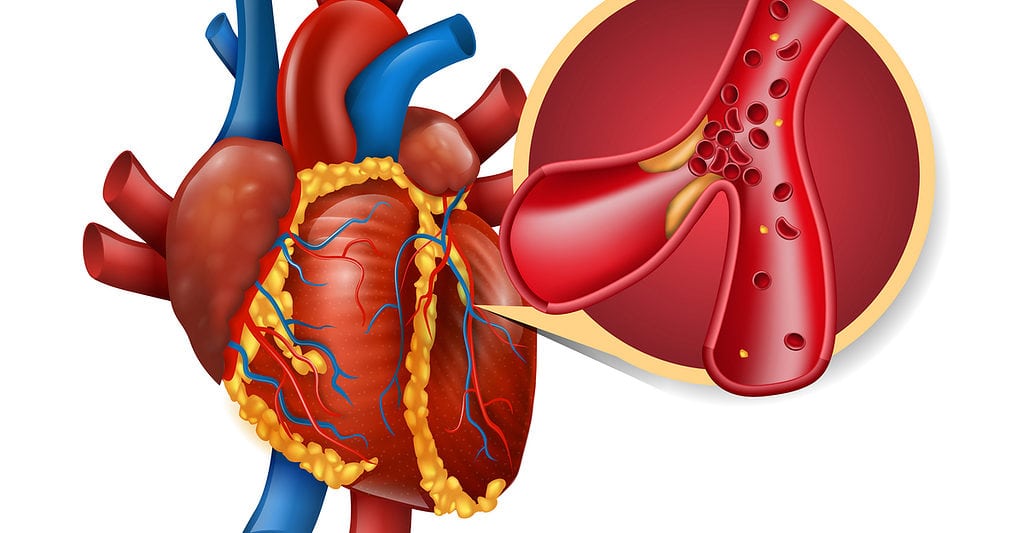 By Dr Jonathan ShurlockEdited by Dr Nitin Chandra Mohan The results of the DanGer Shock trial were recently presented at the American College of Cardiology congress alongside a simultaneous publication in the New England Journal of Medicine. The results, presented by Professor Jacob Møller have resulted in broad discussion regarding mechanical circulatory support for patients suffering with ST-segment elevation myocardial infarction complicated by cardiogenic shock. Briefly, this multi-centre trial, randomised 360 patients with STEMI to either standard care plus Impella placement (n=179), versus standard care … Read more
By Dr Jonathan ShurlockEdited by Dr Nitin Chandra Mohan The results of the DanGer Shock trial were recently presented at the American College of Cardiology congress alongside a simultaneous publication in the New England Journal of Medicine. The results, presented by Professor Jacob Møller have resulted in broad discussion regarding mechanical circulatory support for patients suffering with ST-segment elevation myocardial infarction complicated by cardiogenic shock. Briefly, this multi-centre trial, randomised 360 patients with STEMI to either standard care plus Impella placement (n=179), versus standard care … Read more - There is benefit to communicating CVD risk with patients: A meta-analysis
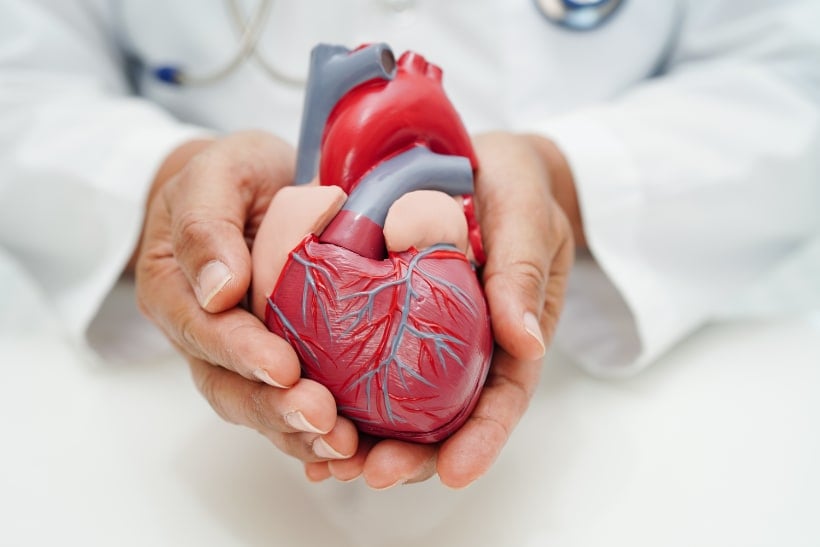 By Dr Jonathan Shurlock Edited by Dr. Ahmed El-Medany A meta-analysis from Dr Mina Bakhit (@Mina_Bakhit) and colleagues has explored the role of cardiovascular disease (CVD) risk communication and its role in promoting behavioural change. The authors identified randomised trials comparing CVD risk communication as a part of treatment, versus usual care, with 62 trials included. Participant accuracy in identification of their CVD risk was higher in those receiving structured risk communication (odds ratio (OR) = 2.31, 95% confidence interval (CI) = 1.63 to 3.27). There … Read more
By Dr Jonathan Shurlock Edited by Dr. Ahmed El-Medany A meta-analysis from Dr Mina Bakhit (@Mina_Bakhit) and colleagues has explored the role of cardiovascular disease (CVD) risk communication and its role in promoting behavioural change. The authors identified randomised trials comparing CVD risk communication as a part of treatment, versus usual care, with 62 trials included. Participant accuracy in identification of their CVD risk was higher in those receiving structured risk communication (odds ratio (OR) = 2.31, 95% confidence interval (CI) = 1.63 to 3.27). There … Read more - Patients with heart failure: Virtual wards
 By Dr Jonathan Shurlock Edited by Dr. Ahmed El-Medany NHS England have published data related to ‘virtual wards’, which since October have been a recommended option for the care of some heart failure patients by the National Institute for Health and Care Excellence. 8,586 patients were receiving treatment via a virtual ward in December, up from 7,886 in November. According to The Standard, Professor Sir Stephen Powiss has described the “rapid expansion” of virtual wards as “a real NHS success story”. This view is challenged, however, … Read more
By Dr Jonathan Shurlock Edited by Dr. Ahmed El-Medany NHS England have published data related to ‘virtual wards’, which since October have been a recommended option for the care of some heart failure patients by the National Institute for Health and Care Excellence. 8,586 patients were receiving treatment via a virtual ward in December, up from 7,886 in November. According to The Standard, Professor Sir Stephen Powiss has described the “rapid expansion” of virtual wards as “a real NHS success story”. This view is challenged, however, … Read more - Cardiac waiting lists: An outlier or some progress? Part V
 By Dr Jonathan Shurlock Edited by Dr. Ahmed El-Medany Each of our previous reports have described the continued growth of cardiac waiting lists, including when we last looked in October 2023. NHS England have published the figures for the end of December 2023 showing a fall in the number of people on waiting lists to 402,028 as of the end of November (down 4,667 from the end of October). This is the first occurrence of this since we started following and reporting these figures. According to … Read more
By Dr Jonathan Shurlock Edited by Dr. Ahmed El-Medany Each of our previous reports have described the continued growth of cardiac waiting lists, including when we last looked in October 2023. NHS England have published the figures for the end of December 2023 showing a fall in the number of people on waiting lists to 402,028 as of the end of November (down 4,667 from the end of October). This is the first occurrence of this since we started following and reporting these figures. According to … Read more - Apixaban reduces the risk of stroke in device-detected subclinical atrial fibrillation
 By Dr. Florence Mouy Edited by Dr. Ahmed El-Medany The ARTESIA trial (Apixaban for the Reduction of Thrombo-Embolism in Patients with Device-Detected Sub-Clinical Atrial Fibrillation) has shown that apixaban reduces the risk of stroke in patients with device-detected subclinical atrial fibrillation (AF) who have risk factors for stroke. Subclinical AF has been shown to increase the risk of stroke by a factor of 2.5 in patients with risk factors for stroke. This is lower than in patients with clinical AF (4-5-fold increased risk of stroke), and … Read more
By Dr. Florence Mouy Edited by Dr. Ahmed El-Medany The ARTESIA trial (Apixaban for the Reduction of Thrombo-Embolism in Patients with Device-Detected Sub-Clinical Atrial Fibrillation) has shown that apixaban reduces the risk of stroke in patients with device-detected subclinical atrial fibrillation (AF) who have risk factors for stroke. Subclinical AF has been shown to increase the risk of stroke by a factor of 2.5 in patients with risk factors for stroke. This is lower than in patients with clinical AF (4-5-fold increased risk of stroke), and … Read more - The diagnostic yield of NT-proBNP in a regional heart failure pathway
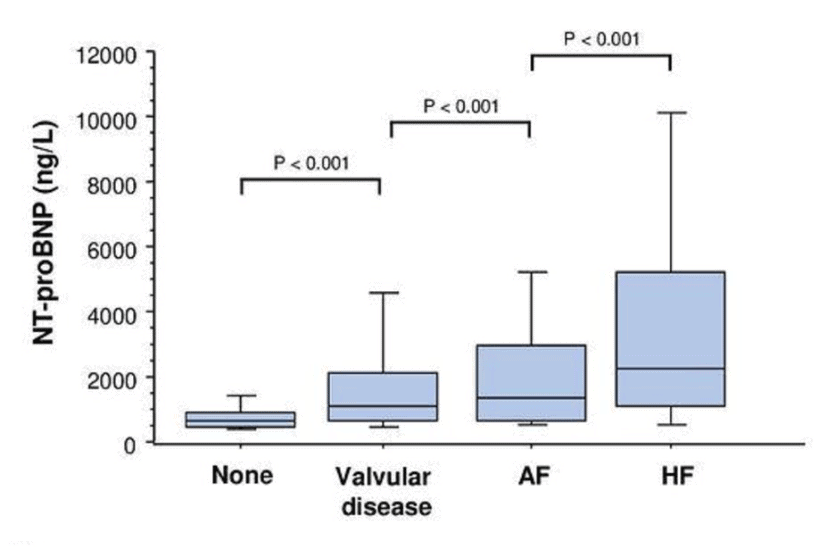 By Dr. Jonathan ShurlockEdited by Dr. Ahmed El-Medany An interesting study in BMJ Open Heart has explored the diagnostic yield of a regional heart failure referral pathway at Queen Elizabeth Hospital in Birmingham. Dr Abbasin Zegard and colleagues have explored the utility of the N-terminal pro-brain natriuretic peptide (NT-proBNP) blood test in this context. The authors identified 654 consecutive patients referred to the local heart failure service from primary care, with a community NT-proBNP >400 ng/L (age: 78.5±9.72 years; 45.9% men). Of these individuals, a cardiac diagnosis … Read more
By Dr. Jonathan ShurlockEdited by Dr. Ahmed El-Medany An interesting study in BMJ Open Heart has explored the diagnostic yield of a regional heart failure referral pathway at Queen Elizabeth Hospital in Birmingham. Dr Abbasin Zegard and colleagues have explored the utility of the N-terminal pro-brain natriuretic peptide (NT-proBNP) blood test in this context. The authors identified 654 consecutive patients referred to the local heart failure service from primary care, with a community NT-proBNP >400 ng/L (age: 78.5±9.72 years; 45.9% men). Of these individuals, a cardiac diagnosis … Read more - Do patients with minimally symptomatic severe aortic stenosis benefit from TAVI?
 By Dr. Florence Mouy Edited by Dr. Ahmed El-Medany A study by Huded et al has assessed the outcomes of transcatheter aortic valve implantation (TAVI) in minimally symptomatic patients. They performed a retrospective study of 231,285 patients with severe aortic stenosis and normal left ventricular ejection fraction (LVEF) who had undergone TAVI between 2015 and 2021. 20% of these patients were minimally symptomatic prior to TAVI, as defined by a baseline Kansas City Cardiomyopathy Questionnaire overall summary score (KCCQ-OS) of 75 or over. The 1-year survival … Read more
By Dr. Florence Mouy Edited by Dr. Ahmed El-Medany A study by Huded et al has assessed the outcomes of transcatheter aortic valve implantation (TAVI) in minimally symptomatic patients. They performed a retrospective study of 231,285 patients with severe aortic stenosis and normal left ventricular ejection fraction (LVEF) who had undergone TAVI between 2015 and 2021. 20% of these patients were minimally symptomatic prior to TAVI, as defined by a baseline Kansas City Cardiomyopathy Questionnaire overall summary score (KCCQ-OS) of 75 or over. The 1-year survival … Read more - Cardiac waiting lists continue to grow: Part IV
 By Dr. Jonathan ShurlockEdited by Dr Saadia Aslamy NHS England have released the latest waiting list figures, for the end of August. These have highlighted a further increase in waiting times for cardiac investigations and treatment since July 2023. As of the end of August the number of people on such cardiac waiting lists increased to 406,646 (from 402,793 at the end of July), this is an annual increase of 17% from August 2022. Ambulance waiting times for category 2 calls (includes suspected heart attacks) have also … Read more
By Dr. Jonathan ShurlockEdited by Dr Saadia Aslamy NHS England have released the latest waiting list figures, for the end of August. These have highlighted a further increase in waiting times for cardiac investigations and treatment since July 2023. As of the end of August the number of people on such cardiac waiting lists increased to 406,646 (from 402,793 at the end of July), this is an annual increase of 17% from August 2022. Ambulance waiting times for category 2 calls (includes suspected heart attacks) have also … Read more - Bumetanide shortage: important consideration for community heart failure teams
 By Dr. Jonathan Shurlock The Department for Health and Social Care (DHSC) has issued a medicine supply shortage notification for Bumetanide oral tablet preparations (1mg and 5mg) on 12th October 2023. Bumetanide 5mg tablets will be out of stock until March 2024. Bumetanide 1mg tablets will be available until the end of October and then out of stock until January 2024. The notice is important for community heart failure teams. Alternative loop diuretics (furosemide) will be available and in adequate supply to manage increased demand. The … Read more
By Dr. Jonathan Shurlock The Department for Health and Social Care (DHSC) has issued a medicine supply shortage notification for Bumetanide oral tablet preparations (1mg and 5mg) on 12th October 2023. Bumetanide 5mg tablets will be out of stock until March 2024. Bumetanide 1mg tablets will be available until the end of October and then out of stock until January 2024. The notice is important for community heart failure teams. Alternative loop diuretics (furosemide) will be available and in adequate supply to manage increased demand. The … Read more - Decreasing access to ALS training: unknown impact on outcomes
 By Dr. Jonathan ShurlockEdited by Dr Saadia Aslamy A recently published article in the BMJ laments the removal of Advanced Life Support training at both undergraduate and postgraduate levels. It is no longer mandatory in the 2021 Foundation Training curriculum, in response to a GMC directive to reduce named courses from postgraduate training. Consequently, HEE does not support complete funding for the course. Foundation trainees may be the first to arrive at an in-hospital emergency and should have the necessary training to initiate timely advanced life support. … Read more
By Dr. Jonathan ShurlockEdited by Dr Saadia Aslamy A recently published article in the BMJ laments the removal of Advanced Life Support training at both undergraduate and postgraduate levels. It is no longer mandatory in the 2021 Foundation Training curriculum, in response to a GMC directive to reduce named courses from postgraduate training. Consequently, HEE does not support complete funding for the course. Foundation trainees may be the first to arrive at an in-hospital emergency and should have the necessary training to initiate timely advanced life support. … Read more - Cardiac waiting lists continue to grow: Part III
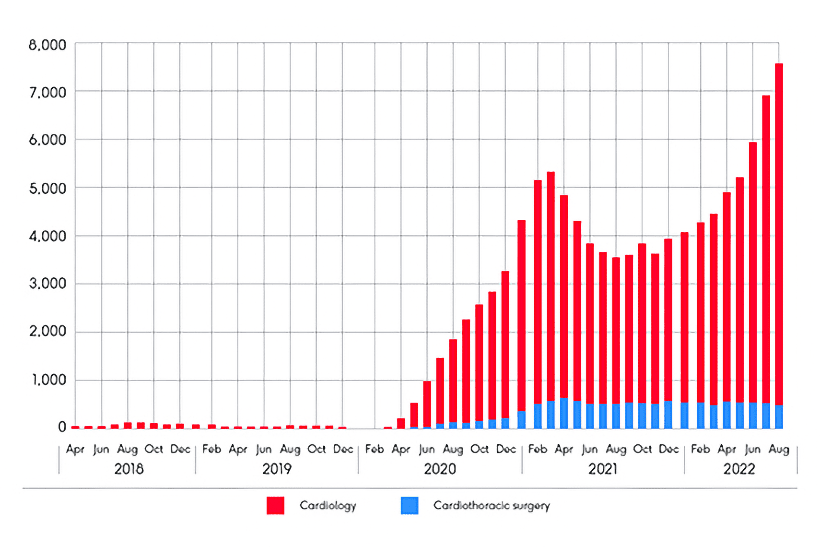 By Dr. Jonathan ShurlockEdited by Dr. Ahmed El-Medany In July we reported the ongoing growth of cardiac waiting lists based on figures released by NHS England. As is likely anticipated by anyone involved in healthcare, this troubling trend has continued, with a further rise to record levels. As of the end of July 2023, the number of people on cardiac waiting lists is 402,793 compared with 392,698 at the end of March. This represents a 73% increase from the waiting list size in February 2020, … Read more
By Dr. Jonathan ShurlockEdited by Dr. Ahmed El-Medany In July we reported the ongoing growth of cardiac waiting lists based on figures released by NHS England. As is likely anticipated by anyone involved in healthcare, this troubling trend has continued, with a further rise to record levels. As of the end of July 2023, the number of people on cardiac waiting lists is 402,793 compared with 392,698 at the end of March. This represents a 73% increase from the waiting list size in February 2020, … Read more - Machine learning to identify occlusive myocardial infarction (The ECG-SMART tool)
 By Dr. Jonathan ShurlockEdited by Dr. Ahmed El-Medany Thanks to the relentless work of Professor Stephen Smith (@smithECGBlog), the concept of occlusive and non-occlusive myocardial infarction is becoming more widely used in place of the STEMI/NSTEMI paradigm. With this shift comes an increasing need for timely and accurate ECG interpretation, particularly when assessing for subtle changes. Professor Al-Zaiti and colleagues have explored a method to support such ECG analysis through the development of a machine learning algorithm targeted at diagnosis and risk stratification for occlusive … Read more
By Dr. Jonathan ShurlockEdited by Dr. Ahmed El-Medany Thanks to the relentless work of Professor Stephen Smith (@smithECGBlog), the concept of occlusive and non-occlusive myocardial infarction is becoming more widely used in place of the STEMI/NSTEMI paradigm. With this shift comes an increasing need for timely and accurate ECG interpretation, particularly when assessing for subtle changes. Professor Al-Zaiti and colleagues have explored a method to support such ECG analysis through the development of a machine learning algorithm targeted at diagnosis and risk stratification for occlusive … Read more - A paradigm shift in treating older patients with acute myocardial infarction: the FIRE Trial
 By Dr. Aswin BabuEdited by Dr. Ahmed El-Medany The FIRE trial brings forth strong evidence for a transformative approach in managing older patients presenting with acute myocardial infarction (MI) accompanied by multivessel coronary artery disease (CAD). This trial assessed whether multivessel revascularization guided by coronary physiology over the conventional culprit-only revascularisation strategy would show a benefit in hard cardiovascular outcomes. The trial was a randomised, parallel, open-label study design. Among the enrolled patients (n=1,445), 720 underwent multivessel revascularisation guided by coronary physiology, while 725 received … Read more
By Dr. Aswin BabuEdited by Dr. Ahmed El-Medany The FIRE trial brings forth strong evidence for a transformative approach in managing older patients presenting with acute myocardial infarction (MI) accompanied by multivessel coronary artery disease (CAD). This trial assessed whether multivessel revascularization guided by coronary physiology over the conventional culprit-only revascularisation strategy would show a benefit in hard cardiovascular outcomes. The trial was a randomised, parallel, open-label study design. Among the enrolled patients (n=1,445), 720 underwent multivessel revascularisation guided by coronary physiology, while 725 received … Read more - MULTISTARS AMI: immediate and complete revascularisation triumphs in STEMI with multivessel Disease
 By Dr. Aswin BabuEdited by Dr. Ahmed El-Medany The MULTISTARS AMI trial (Figure 1) has set a new course in the landscape of cardiac care, unveiling the superiority of immediate percutaneous coronary intervention (PCI) over staged PCI in the treatment of ST-segment elevation myocardial infarction (STEMI) with multivessel coronary artery disease (CAD) in haemodynamically stable patients. The primary objective of the trial was to assess the comparative safety and efficacy of immediate and staged PCI for non-culprit lesions in hemodynamically stable patients presenting with STEMI … Read more
By Dr. Aswin BabuEdited by Dr. Ahmed El-Medany The MULTISTARS AMI trial (Figure 1) has set a new course in the landscape of cardiac care, unveiling the superiority of immediate percutaneous coronary intervention (PCI) over staged PCI in the treatment of ST-segment elevation myocardial infarction (STEMI) with multivessel coronary artery disease (CAD) in haemodynamically stable patients. The primary objective of the trial was to assess the comparative safety and efficacy of immediate and staged PCI for non-culprit lesions in hemodynamically stable patients presenting with STEMI … Read more - No role for extracorporeal life support in infarct-related cardiogenic shock: The ECLS-SHOCK trial
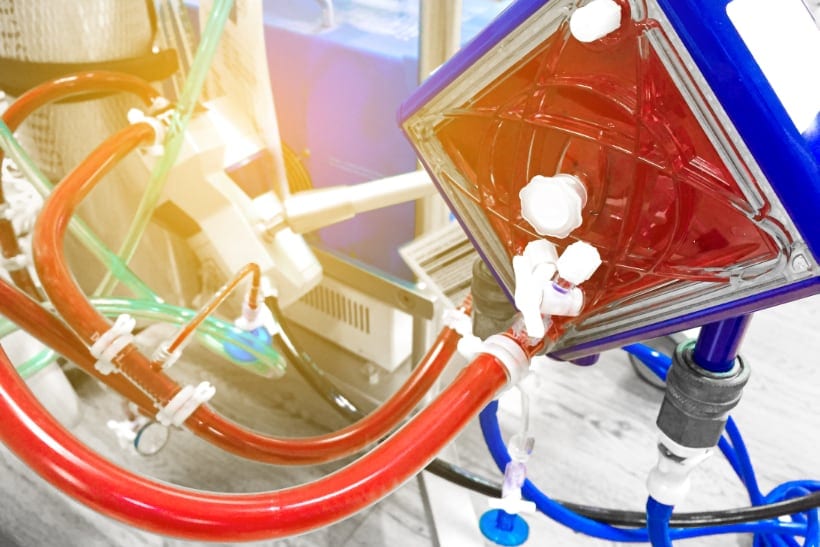 By Dr Jonathan Shurlock A new study published in the New England Journal of Medicine has found that early routine extracorporeal membrane oxygenation (ECLS) treatment does not improve survival in patients with acute myocardial infarction (AMI) complicated by cardiogenic shock. 10% of hospital admissions with myocardial infarction are complicated by cardiogenic shock with high (40-50%) 30-day mortality. There has been an increasing use of extracorporeal life support for the treatment of infarct related cardiogenic shock, without clear evidence to support this strategy. Conducted across 44 centres, … Read more
By Dr Jonathan Shurlock A new study published in the New England Journal of Medicine has found that early routine extracorporeal membrane oxygenation (ECLS) treatment does not improve survival in patients with acute myocardial infarction (AMI) complicated by cardiogenic shock. 10% of hospital admissions with myocardial infarction are complicated by cardiogenic shock with high (40-50%) 30-day mortality. There has been an increasing use of extracorporeal life support for the treatment of infarct related cardiogenic shock, without clear evidence to support this strategy. Conducted across 44 centres, … Read more - Low public confidence in identifying signs of heart attack: new data from NHS England
 By Dr Jonathan ShurlockEdited by Dr Saadia Aslam Almost half of adults in England are not confident in identifying symptoms of a heart attack, according to a survey carried out by NHS England, as part of the Help Us, Help You campaign. In the highest risk group of those aged over 55, this rose to 51% of respondents who did not feel confident in recognising the commonly reported symptoms of a heart attack. Over a third of respondents (36%) reported that they would not call … Read more
By Dr Jonathan ShurlockEdited by Dr Saadia Aslam Almost half of adults in England are not confident in identifying symptoms of a heart attack, according to a survey carried out by NHS England, as part of the Help Us, Help You campaign. In the highest risk group of those aged over 55, this rose to 51% of respondents who did not feel confident in recognising the commonly reported symptoms of a heart attack. Over a third of respondents (36%) reported that they would not call … Read more - AF ablation in end stage heart failure: CASTLE-HTx
 By Dr Jonathan ShurlockEdited by Dr Ahmed El-Medany Management of symptomatic atrial fibrillation (AF) can be a challenging scenario, often with limited options for adjustment of medication. The CASTLE-HTx investigators explored this topic in a small randomised, open label trial. As always the key to interpreting the results is in the study design. The previously published CASTLE-HTx protocol describes how patients were recruited from those with end stage heart failure, presenting for heart failure assessment. Interestingly AF could be documented through any form, including cardiac … Read more
By Dr Jonathan ShurlockEdited by Dr Ahmed El-Medany Management of symptomatic atrial fibrillation (AF) can be a challenging scenario, often with limited options for adjustment of medication. The CASTLE-HTx investigators explored this topic in a small randomised, open label trial. As always the key to interpreting the results is in the study design. The previously published CASTLE-HTx protocol describes how patients were recruited from those with end stage heart failure, presenting for heart failure assessment. Interestingly AF could be documented through any form, including cardiac … Read more - Could you be our next non-executive trustee for education?
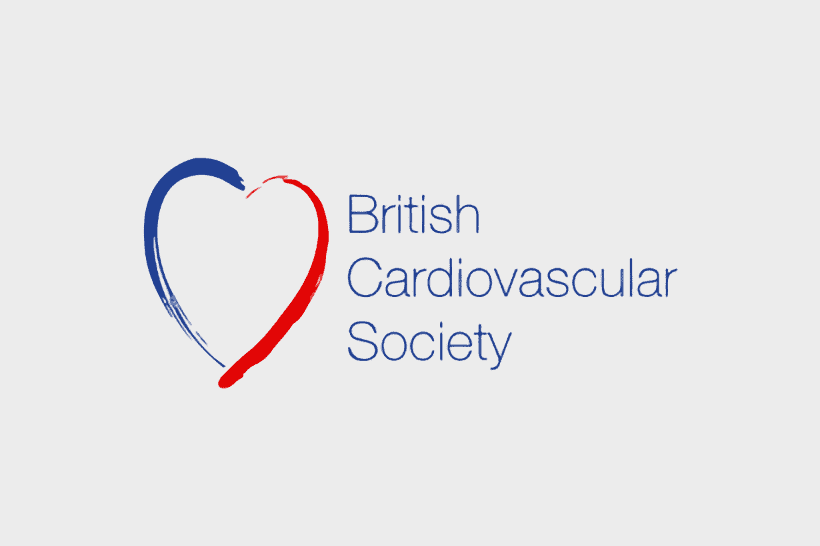 The British Cardiovascular Society is seeking a Non-Executive Trustee with expertise in Education to join its Board from November 2023 following the end of tenure of the current role-holder, Malcolm Bell, at the end of September. By joining our Board of Trustees, you will contribute to setting BCS strategy and key policies over the coming years, and developing our aims, objectives and goals, while monitoring and inspiring the performance of the BCS, its CEO and management team. Non-Executive Trustees are appointed for a term of … Read more
The British Cardiovascular Society is seeking a Non-Executive Trustee with expertise in Education to join its Board from November 2023 following the end of tenure of the current role-holder, Malcolm Bell, at the end of September. By joining our Board of Trustees, you will contribute to setting BCS strategy and key policies over the coming years, and developing our aims, objectives and goals, while monitoring and inspiring the performance of the BCS, its CEO and management team. Non-Executive Trustees are appointed for a term of … Read more - Heart announces new editor-in-chief
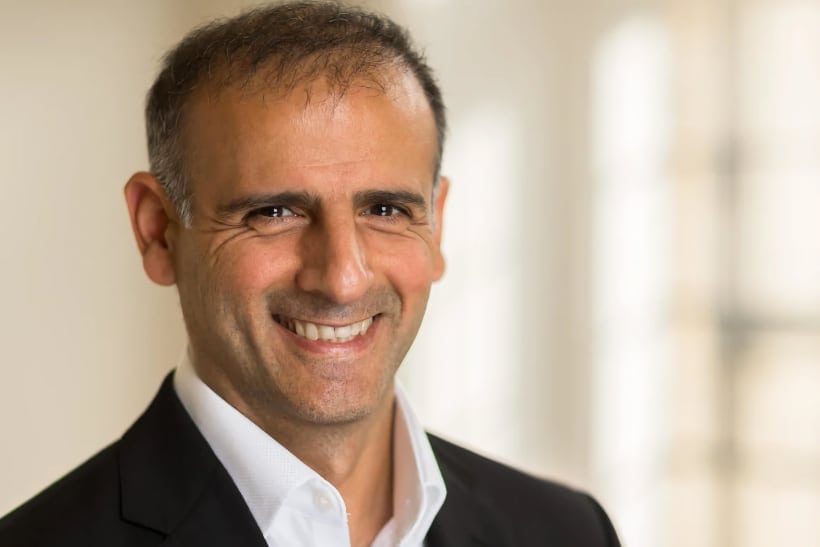 By Dr Jonathan Shurlock Professor Kazem Rahimi has been announced as the new editor-in-chief of Heart, and will be taking up the role from January 2024. Professor Rahimi currently works as a consultant cardiologist at Oxford University Hospitals NHS trust and is a Professor of Cardiovascular Medicine and Population Health. His research covers a broad range of cardiovascular topics including risk management, heart failure, hypertension, and the role of digital health technologies. Recent notable publications include a systematic review and meta-analysis exploring the sex-specific effects … Read more
By Dr Jonathan Shurlock Professor Kazem Rahimi has been announced as the new editor-in-chief of Heart, and will be taking up the role from January 2024. Professor Rahimi currently works as a consultant cardiologist at Oxford University Hospitals NHS trust and is a Professor of Cardiovascular Medicine and Population Health. His research covers a broad range of cardiovascular topics including risk management, heart failure, hypertension, and the role of digital health technologies. Recent notable publications include a systematic review and meta-analysis exploring the sex-specific effects … Read more - Heart failure: Hospital admissions in the last year of life
 By Dr Jonathan ShurlockEdited by Dr Ahmed El-Medany A team led by Dr Alexandra Abel (@alexandraabel) have recently published their work exploring the important topic of admissions in the last year of life for patients with a diagnosis of heart failure. The findings are essential reading for heart failure teams. The study explored patients who were referred to a secondary care heart failure clinic between 2001 and 2020. Participants were divided into 3 groups: 4,925 patients were included for follow-up, with an average age at … Read more
By Dr Jonathan ShurlockEdited by Dr Ahmed El-Medany A team led by Dr Alexandra Abel (@alexandraabel) have recently published their work exploring the important topic of admissions in the last year of life for patients with a diagnosis of heart failure. The findings are essential reading for heart failure teams. The study explored patients who were referred to a secondary care heart failure clinic between 2001 and 2020. Participants were divided into 3 groups: 4,925 patients were included for follow-up, with an average age at … Read more - A framework for same-day discharge following elective transcatheter cardiovascular interventions
 By Dr Florence Mouy Edited by Dr Ahmed El-Medany Early hospital discharge following transcatheter cardiovascular interventions (TCI) is becoming increasingly common, through a combination of procedural and technological advancements and operator experience. Krishnaswamy et al reviewed the safety of early discharge and present a framework for same day discharge (SDD) following a range of TCI, including coronary, peripheral, and structural cardiovascular interventions. Each type of procedure is assessed in terms of feasibility and safety of SDD. They identified several key elements necessary for safe SDD which, … Read more
By Dr Florence Mouy Edited by Dr Ahmed El-Medany Early hospital discharge following transcatheter cardiovascular interventions (TCI) is becoming increasingly common, through a combination of procedural and technological advancements and operator experience. Krishnaswamy et al reviewed the safety of early discharge and present a framework for same day discharge (SDD) following a range of TCI, including coronary, peripheral, and structural cardiovascular interventions. Each type of procedure is assessed in terms of feasibility and safety of SDD. They identified several key elements necessary for safe SDD which, … Read more - Heart failure and frailty phenotypes – A lesson from percutaneous mitral valve repair
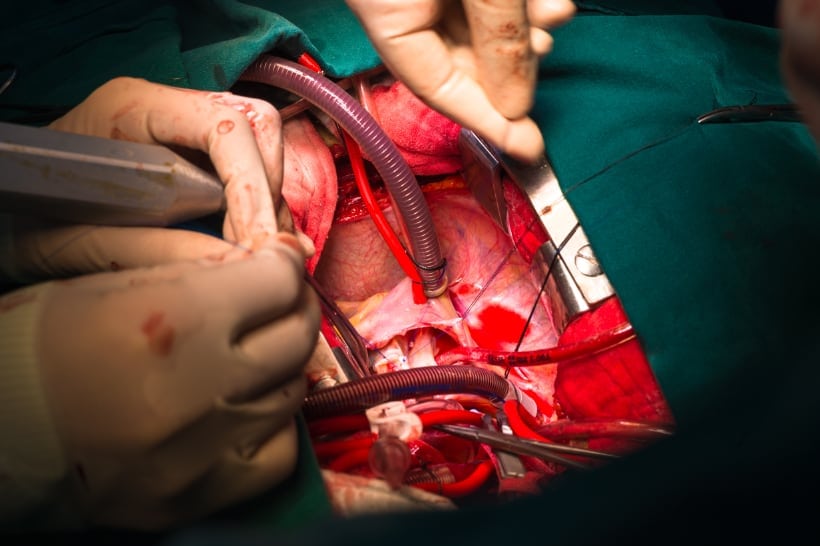 By Dr Florence MouyEdited by Dr Ahmed El-Medany A significant proportion of patients with heart failure are physically frail and these 2 conditions share similar physical characteristics. Many patients with significant mitral valve regurgitation are not suitable of invasive management for their valvular disease due to their baseline frailty scores. How much the clinical syndrome of heart failure contributes to physical frailty is however unclear. Metze et al prospectively studied 258 patients with symptomatic secondary mitral regurgitation undergoing percutaneous mitral valve repair (PMVR) and assessed … Read more
By Dr Florence MouyEdited by Dr Ahmed El-Medany A significant proportion of patients with heart failure are physically frail and these 2 conditions share similar physical characteristics. Many patients with significant mitral valve regurgitation are not suitable of invasive management for their valvular disease due to their baseline frailty scores. How much the clinical syndrome of heart failure contributes to physical frailty is however unclear. Metze et al prospectively studied 258 patients with symptomatic secondary mitral regurgitation undergoing percutaneous mitral valve repair (PMVR) and assessed … Read more - TOMAHAWK trial – clinical outcomes from 1-year follow-up
 By Dr Jonathan ShurlockEdited by Dr Ahmed El-Medany The TOMAHAWK Investigators, led by Dr Steffen Desch, have described clinical outcomes at 1 year for individuals presenting with out-of-hospital cardiac arrest (OHCA) with a presumed cardiac cause in a much-anticipated follow-up to the original TOMAHAWK trial. The original trial randomised 554 patients presenting with OHCA, without ST-segment elevation to immediate angiography or initial intensive care assessment with delayed or selective angiography. In the present study, the authors undertook a follow up secondary analysis of the original … Read more
By Dr Jonathan ShurlockEdited by Dr Ahmed El-Medany The TOMAHAWK Investigators, led by Dr Steffen Desch, have described clinical outcomes at 1 year for individuals presenting with out-of-hospital cardiac arrest (OHCA) with a presumed cardiac cause in a much-anticipated follow-up to the original TOMAHAWK trial. The original trial randomised 554 patients presenting with OHCA, without ST-segment elevation to immediate angiography or initial intensive care assessment with delayed or selective angiography. In the present study, the authors undertook a follow up secondary analysis of the original … Read more - Overdiagnosis: a problem with complex solutions?
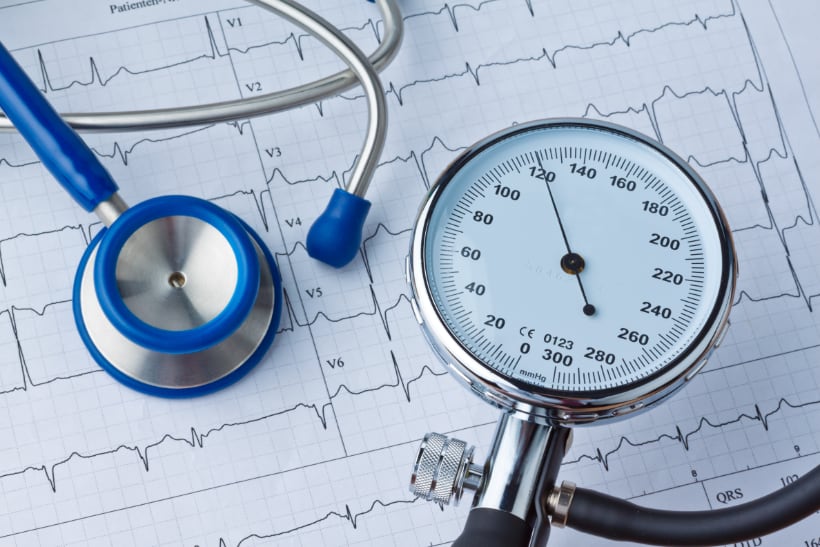 By Dr Jonathan ShurlockSenior Editor: Dr Saadia Aslam Healthcare systems around the world are in crisis, with increased demand, high burden of chronic disease, escalating costs and diminishing workforce capacity. Waiting lists for cardiovascular services are also growing in the UK. Professor Thomas Khulein and colleagues recently published an opinion article on “overdiagnosis in medicine” in the BMJ. Whilst they support increasing investment and capacity in healthcare, they also make the argument for ‘being open to the possibility of excess healthcare’. Increasing disease prevalence is … Read more
By Dr Jonathan ShurlockSenior Editor: Dr Saadia Aslam Healthcare systems around the world are in crisis, with increased demand, high burden of chronic disease, escalating costs and diminishing workforce capacity. Waiting lists for cardiovascular services are also growing in the UK. Professor Thomas Khulein and colleagues recently published an opinion article on “overdiagnosis in medicine” in the BMJ. Whilst they support increasing investment and capacity in healthcare, they also make the argument for ‘being open to the possibility of excess healthcare’. Increasing disease prevalence is … Read more - Government announces defibrillators in all state funded schools
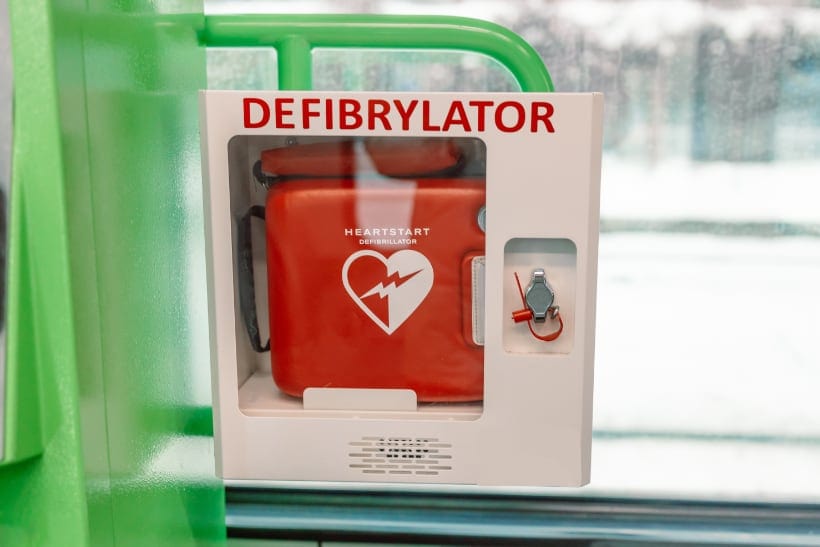 By Dr Jonathan ShurlockEdited by Dr Ahmed El-Medany This week, in a press release, the government announced that every state funded school in England has at least one automated external defibrillator (AED) on site, after a nationwide directive. The programme has resulted in 20,376 devices being delivered to 17,862 schools, at a cost of £19 million. Schools with a larger footprint have been provided with multiple defibrillators, placed in areas deemed more likely to be used, including sports halls. The energy behind this campaign has … Read more
By Dr Jonathan ShurlockEdited by Dr Ahmed El-Medany This week, in a press release, the government announced that every state funded school in England has at least one automated external defibrillator (AED) on site, after a nationwide directive. The programme has resulted in 20,376 devices being delivered to 17,862 schools, at a cost of £19 million. Schools with a larger footprint have been provided with multiple defibrillators, placed in areas deemed more likely to be used, including sports halls. The energy behind this campaign has … Read more - Routine postoperative troponin monitoring… should we?
 By Dr Jonathan ShurlockEdited by Dr Saadia Aslam Perioperative myocardial infarction is associated with increased mortality. The 2022 ESC guidelines have made a class I recommendation for routine postoperative troponin surveillance in select groups of patients (known cardiovascular disease/risk factors) undergoing intermediate- to high-risk surgery. Professor van Klei and his team’s work, published in the European Heart Journal, explores this further whilst highlighting areas whereby routine postoperative troponin surveillance does not meet the WHO criteria for a population screening programme in the graphical abstract below. … Read more
By Dr Jonathan ShurlockEdited by Dr Saadia Aslam Perioperative myocardial infarction is associated with increased mortality. The 2022 ESC guidelines have made a class I recommendation for routine postoperative troponin surveillance in select groups of patients (known cardiovascular disease/risk factors) undergoing intermediate- to high-risk surgery. Professor van Klei and his team’s work, published in the European Heart Journal, explores this further whilst highlighting areas whereby routine postoperative troponin surveillance does not meet the WHO criteria for a population screening programme in the graphical abstract below. … Read more - Revisiting the role of aspirin in primary prevention: there isn’t one
 By Dr Jonathan ShurlockEdited by Dr Ahmed El-Medany The role of aspirin in primary prevention of cardiovascular disease has been explored previously, with resultant NICE guidance recommending against its use in this role. Dr Geoffrey Cloud has led further research to support this clear stance by formal health policy bodies. Presented in JAMA Network Open, Dr Cloud carried out a secondary analysis of the Aspirin in Reducing Events in the Elderly (ASPREE) trial. The ASPREE trial randomised almost 20,000 healthy participants to regular aspirin or … Read more
By Dr Jonathan ShurlockEdited by Dr Ahmed El-Medany The role of aspirin in primary prevention of cardiovascular disease has been explored previously, with resultant NICE guidance recommending against its use in this role. Dr Geoffrey Cloud has led further research to support this clear stance by formal health policy bodies. Presented in JAMA Network Open, Dr Cloud carried out a secondary analysis of the Aspirin in Reducing Events in the Elderly (ASPREE) trial. The ASPREE trial randomised almost 20,000 healthy participants to regular aspirin or … Read more - Association of private equity ownership on healthcare outcomes and costs
 By Dr Jonathan ShurlockEdited by Dr Ahmed El-Medany A fascinating study in the BMJ has begun to unpick and explore the role of private equity in healthcare provision. Led by Alexandar Borsa (@alexander_borsa) and Professor Joseph Dov Bruch (@Joe_Bruch), the group carried out a systematic review of studies that evaluated private equity owned healthcare providers. The primary outcome measure was the impact of private equity ownership on outcomes, costs, and quality. Studies were identified and then classified as demonstrating benefit, harm, mixed, or neutral impact … Read more
By Dr Jonathan ShurlockEdited by Dr Ahmed El-Medany A fascinating study in the BMJ has begun to unpick and explore the role of private equity in healthcare provision. Led by Alexandar Borsa (@alexander_borsa) and Professor Joseph Dov Bruch (@Joe_Bruch), the group carried out a systematic review of studies that evaluated private equity owned healthcare providers. The primary outcome measure was the impact of private equity ownership on outcomes, costs, and quality. Studies were identified and then classified as demonstrating benefit, harm, mixed, or neutral impact … Read more - Device extraction as standard of care for device related endocarditis
 By Dr Jonathan ShurlockEdited by Dr Saadia Aslam The European-Endocarditis registry (Euro-Endo) presents current diagnostic and management practices for infective endocarditis (IE) and associated outcomes based on adherence to ESC IE guidelines 2015.[1] The steering group, led by Professor Erwan Donal (@DonalErwan), have recently published observational data for patients with cardiac device related endocarditis. This prospective cohort study identified 3116 adult patients from the Euro-Endo registry that met the ESC 2015 IE diagnostic criteria, between January 2016 and March 2018. Of these, 483 patients had … Read more
By Dr Jonathan ShurlockEdited by Dr Saadia Aslam The European-Endocarditis registry (Euro-Endo) presents current diagnostic and management practices for infective endocarditis (IE) and associated outcomes based on adherence to ESC IE guidelines 2015.[1] The steering group, led by Professor Erwan Donal (@DonalErwan), have recently published observational data for patients with cardiac device related endocarditis. This prospective cohort study identified 3116 adult patients from the Euro-Endo registry that met the ESC 2015 IE diagnostic criteria, between January 2016 and March 2018. Of these, 483 patients had … Read more - The role of self-administered intranasal etripamil in the management of SVT: the RAPID trial
 By Dr Jonathan ShurlockEdited by Dr Saadia Aslam Etripamil is a rapid-acting, intranasally administered calcium channel blocker. Previously, the NODE-301 study found it to be safe and well tolerated but without demonstrable benefit compared with placebo, as a single-dose treatment. Further, post-hoc analysis of the NODE-301 trial demonstrated some, time from dose-dependent benefit. Led by Dr Bruce Stambler, the RAPID trial is a multi-centre, placebo-controlled, randomised trial. Participants ≥18 years old, with a history of symptomatic (lasting for ≥20 minutes) paroxysmal SVT and documented ECG … Read more
By Dr Jonathan ShurlockEdited by Dr Saadia Aslam Etripamil is a rapid-acting, intranasally administered calcium channel blocker. Previously, the NODE-301 study found it to be safe and well tolerated but without demonstrable benefit compared with placebo, as a single-dose treatment. Further, post-hoc analysis of the NODE-301 trial demonstrated some, time from dose-dependent benefit. Led by Dr Bruce Stambler, the RAPID trial is a multi-centre, placebo-controlled, randomised trial. Participants ≥18 years old, with a history of symptomatic (lasting for ≥20 minutes) paroxysmal SVT and documented ECG … Read more - Cardiac waiting lists continue to grow: Part II
 By Dr Jonathan ShurlockEdited by Dr Ahmed El-Medany In March we reported on the British Heart Foundation (BHF) response to NHS England’s figures demonstrating growing cardiac waiting lists. At the time of that article 369,204 people were on a waiting list for ‘heart related healthcare’, a 58% rise from February 2020. BHF has now further responded to updated figures from NHSE, and it will surprise few that the figures make for distressing reading. Cardiac waiting lists have increased further, with a current record high of … Read more
By Dr Jonathan ShurlockEdited by Dr Ahmed El-Medany In March we reported on the British Heart Foundation (BHF) response to NHS England’s figures demonstrating growing cardiac waiting lists. At the time of that article 369,204 people were on a waiting list for ‘heart related healthcare’, a 58% rise from February 2020. BHF has now further responded to updated figures from NHSE, and it will surprise few that the figures make for distressing reading. Cardiac waiting lists have increased further, with a current record high of … Read more - Imperial College Healthcare advertise new fellowship position
 By Dr Jonathan ShurlockEdited by Dr Ahmed El-Medany Imperial College Healthcare NHS Trust have advertised a new role open to both potential and current cardiology trainees. The job description outlines a planned route to entry on the GMC specialist register for Cardiology via a Certificate of Eligibility for Specialist Registration (CESR) route. Funding for the position is provided directly by Imperial College Healthcare. There is an expectation of developing clinical excellence and building a research profile through obtaining a PhD. As outlined in the job … Read more
By Dr Jonathan ShurlockEdited by Dr Ahmed El-Medany Imperial College Healthcare NHS Trust have advertised a new role open to both potential and current cardiology trainees. The job description outlines a planned route to entry on the GMC specialist register for Cardiology via a Certificate of Eligibility for Specialist Registration (CESR) route. Funding for the position is provided directly by Imperial College Healthcare. There is an expectation of developing clinical excellence and building a research profile through obtaining a PhD. As outlined in the job … Read more - World Heart Federation: Key report released into worldwide cardiovascular health
 By Dr Jonathan ShurlockEdited by Dr Ahmed El-Medany The World Heart Federation recently published the World Heart Report. A challenging read, the report demonstrates how much progress is needed to tackle cardiovascular disease (CVD) globally. We have summarised the key findings and priorities below. Key findings: Inequality and disparity: Comparison to other causes of death: Recommendations: The report concludes by calling for urgent action to reduce the global burden of CVD. It states that “heart disease is a preventable disease, and we have the tools … Read more
By Dr Jonathan ShurlockEdited by Dr Ahmed El-Medany The World Heart Federation recently published the World Heart Report. A challenging read, the report demonstrates how much progress is needed to tackle cardiovascular disease (CVD) globally. We have summarised the key findings and priorities below. Key findings: Inequality and disparity: Comparison to other causes of death: Recommendations: The report concludes by calling for urgent action to reduce the global burden of CVD. It states that “heart disease is a preventable disease, and we have the tools … Read more - Mapping the cardiac cellular environment: a route to novel therapeutics
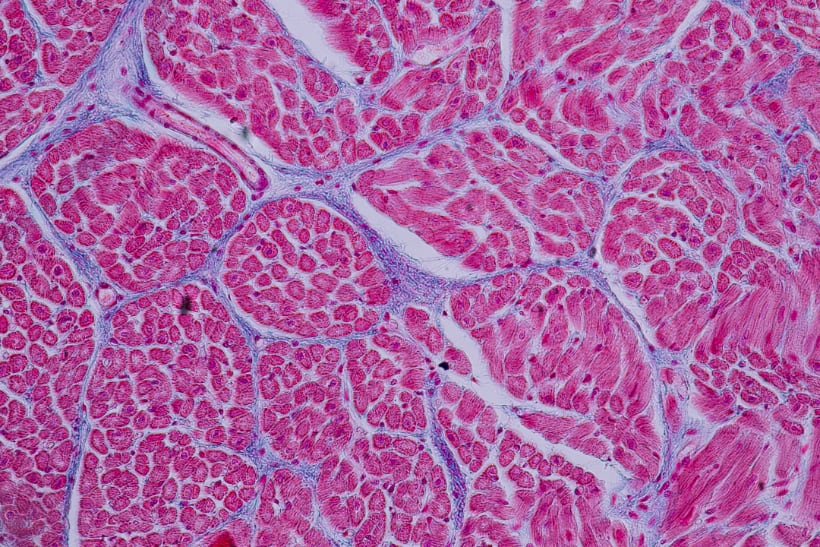 By Dr Jonathan ShurlockEdited by Dr Ahmed El-Medany The function of cells is dependent both on their intrinsic characteristics and niche; the microenvironment in which they exist. A recent study published in Nature used spatial transcriptomics to map the gene expression profiles of cardiac niches in human hearts. The study, led by Dr Kanemaru (@kazukane) and Dr Cranley (@JamesCranley), utilised a custom-built spatial transcriptomics platform to analyse tissue samples from human hearts. The platform combines single-cell RNA sequencing with spatial imaging to create a detailed … Read more
By Dr Jonathan ShurlockEdited by Dr Ahmed El-Medany The function of cells is dependent both on their intrinsic characteristics and niche; the microenvironment in which they exist. A recent study published in Nature used spatial transcriptomics to map the gene expression profiles of cardiac niches in human hearts. The study, led by Dr Kanemaru (@kazukane) and Dr Cranley (@JamesCranley), utilised a custom-built spatial transcriptomics platform to analyse tissue samples from human hearts. The platform combines single-cell RNA sequencing with spatial imaging to create a detailed … Read more - The power of cognition: Reducing AF symptom burden with cognitive behavioural therapy
 By Dr Jonathan ShurlockEdited by Dr Saadia Aslam The symptomatic burden of atrial fibrillation (AF) is well documented, with a known impact on quality of life and an increase in healthcare interaction and intervention. Dr Josefin Särnholm’s team has explored the role of fear of symptoms and avoidance behaviour on disability in AF and the potential role of cognitive behavioural therapy (CBT) to address these. 127 patients with symptomatic paroxysmal AF were identified, with at least European Heart Rhythm Association IIb symptom severity. Participants were … Read more
By Dr Jonathan ShurlockEdited by Dr Saadia Aslam The symptomatic burden of atrial fibrillation (AF) is well documented, with a known impact on quality of life and an increase in healthcare interaction and intervention. Dr Josefin Särnholm’s team has explored the role of fear of symptoms and avoidance behaviour on disability in AF and the potential role of cognitive behavioural therapy (CBT) to address these. 127 patients with symptomatic paroxysmal AF were identified, with at least European Heart Rhythm Association IIb symptom severity. Participants were … Read more - Chair vacancies on the Secretary of State for Transport’s Honorary Medical Advisory Panels
 The DVLA has launched 4 new vacancies looking for a new Panel Chair for each of the Secretary of State for Transport’s Honorary Medical Advisory Panels for: The 4 vacancies will close at 23:59 on Wednesday 12 July 2023. For more information or to apply, please use the following link: https://www.gov.uk/guidance/secretary-of-state-for-transports-honorary-medical-advisory-panels If you know anyone in your own professional network who might be interested in applying, then please also feel free to share the link.
The DVLA has launched 4 new vacancies looking for a new Panel Chair for each of the Secretary of State for Transport’s Honorary Medical Advisory Panels for: The 4 vacancies will close at 23:59 on Wednesday 12 July 2023. For more information or to apply, please use the following link: https://www.gov.uk/guidance/secretary-of-state-for-transports-honorary-medical-advisory-panels If you know anyone in your own professional network who might be interested in applying, then please also feel free to share the link. - Apixaban is less effective than warfarin for On-X aortic valve
 By Dr Timothy SwinnEdited by Dr Saadia Aslam The PROACT-Xa trial (Prospective Randomized On-X Anticoagulation Clinical Trial)1 was stopped early due to higher incidence of valve thrombosis/valve-related thromboembolism with apixaban when compared to warfarin (INR target range 2.0-3.0) for patients with a mechanical On-X aortic valve. This multi-centre assessor-blind trial aimed to investigate whether apixaban was non-inferior to warfarin for prevention of thrombo-embolic events for patients with an aortic On-X mechanical valve. The On-X valve is considered low thrombosis risk. The PROACT trial demonstrated that … Read more
By Dr Timothy SwinnEdited by Dr Saadia Aslam The PROACT-Xa trial (Prospective Randomized On-X Anticoagulation Clinical Trial)1 was stopped early due to higher incidence of valve thrombosis/valve-related thromboembolism with apixaban when compared to warfarin (INR target range 2.0-3.0) for patients with a mechanical On-X aortic valve. This multi-centre assessor-blind trial aimed to investigate whether apixaban was non-inferior to warfarin for prevention of thrombo-embolic events for patients with an aortic On-X mechanical valve. The On-X valve is considered low thrombosis risk. The PROACT trial demonstrated that … Read more - Worryingly low use of defibrillators at out of hospital cardiac arrests: Data from the Essex Cardiothoracic Centre
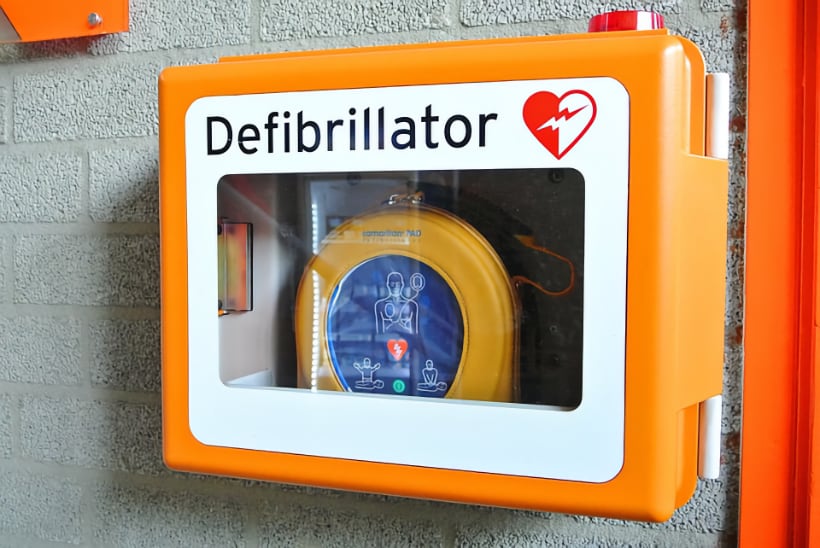 By Dr Jonathan ShurlockEdited by Dr Ahmed El-Medany At the recent BCS annual conference, among the excellent collection of posters, one in particular was a highlight, with concerning findings. A combined effort from the East of England (EoE) Cardiac Network, EoE Ambulance Service, Essex Cardiothoracic Centre and Anglia Ruskin School of Medicine has identified a gap in the chain of survival for out of hospital cardiac arrest (OOHCA), in their region. The study identified all presentations of OOHCA over a 6 month period (April-September 2022) … Read more
By Dr Jonathan ShurlockEdited by Dr Ahmed El-Medany At the recent BCS annual conference, among the excellent collection of posters, one in particular was a highlight, with concerning findings. A combined effort from the East of England (EoE) Cardiac Network, EoE Ambulance Service, Essex Cardiothoracic Centre and Anglia Ruskin School of Medicine has identified a gap in the chain of survival for out of hospital cardiac arrest (OOHCA), in their region. The study identified all presentations of OOHCA over a 6 month period (April-September 2022) … Read more - TAVI benefits shown to be durable compared to surgery: The Evolut Low Risk trial
 By Dr Jonathan ShurlockEdited by Dr Ahmed El-Medany Transcatheter aortic valve implantation (TAVI) continues to be at the forefront of many discussions at present, particularly in the UK. In addition to wider issues in discussion currently, evidence continues to accumulate in favour of TAVI. The 3-year follow up results of the Evolut Low Risk trial were presented at the 2023 BCS annual scientific session. The Evolut Low risk trial is a randomised trial assessing for non-inferiority of TAVI compared to surgical aortic valve replacement (SAVR). … Read more
By Dr Jonathan ShurlockEdited by Dr Ahmed El-Medany Transcatheter aortic valve implantation (TAVI) continues to be at the forefront of many discussions at present, particularly in the UK. In addition to wider issues in discussion currently, evidence continues to accumulate in favour of TAVI. The 3-year follow up results of the Evolut Low Risk trial were presented at the 2023 BCS annual scientific session. The Evolut Low risk trial is a randomised trial assessing for non-inferiority of TAVI compared to surgical aortic valve replacement (SAVR). … Read more - Michael Davies Early Career Award: Professor Vanessa Ferreira
 By Dr Jonathan ShurlockEdited by Dr Ahmed El-Medany As part of the 2023 BCS annual conference, Professor Ferreira presented an overview of their research as recipient of the Michael Davies Early Career Award. Professor Ferreira is a BHF Associate Professor of Cardiovascular Medicine, Honorary Cardiology Consultant, and Deputy Clinical Director of the Oxford Centre for Clinical Magnetic Resonance Research. The focus of Professor Ferreira’s research and presentation explored the role of machine learning in developing new forms of CMRI to characterise myocardial tissue. The talk … Read more
By Dr Jonathan ShurlockEdited by Dr Ahmed El-Medany As part of the 2023 BCS annual conference, Professor Ferreira presented an overview of their research as recipient of the Michael Davies Early Career Award. Professor Ferreira is a BHF Associate Professor of Cardiovascular Medicine, Honorary Cardiology Consultant, and Deputy Clinical Director of the Oxford Centre for Clinical Magnetic Resonance Research. The focus of Professor Ferreira’s research and presentation explored the role of machine learning in developing new forms of CMRI to characterise myocardial tissue. The talk … Read more - BCS announces new partnership with the Royal Society of Medicine
 The Royal Society of Medicine (RSM) and the BCS have a new collaborative partnership, offering career-enhancing benefits to BCS members with a 15% discount on RSM membership. The RSM is one of the UK’s leading providers of continuing learning for healthcare professionals. Members benefit from a comprehensive range of highly regarded education resources, including a world-leading online library with unlimited access to e-resources and over five major databases; free or discounted meetings and webinars across over 50 specialties, many of which come with CPD accreditation; and the chance to enter prizes and … Read more
The Royal Society of Medicine (RSM) and the BCS have a new collaborative partnership, offering career-enhancing benefits to BCS members with a 15% discount on RSM membership. The RSM is one of the UK’s leading providers of continuing learning for healthcare professionals. Members benefit from a comprehensive range of highly regarded education resources, including a world-leading online library with unlimited access to e-resources and over five major databases; free or discounted meetings and webinars across over 50 specialties, many of which come with CPD accreditation; and the chance to enter prizes and … Read more - Remote heart failure monitoring to improve quality of life and reduced hospitilisations: the MONITOR-HF trial
 By Dr Jonathan ShurlockEdited by Dr Saadia Aslam Remote monitoring of patients with heart failure (HF), via pulmonary artery pressure monitoring, is included in the ESC HF guidelines. Previous studies (CHAMPION and GUIDE-HF) of pulmonary artery pressure monitoring have resulted in equipoise, with this device receiving a class IIb recommendation by the ESC. MONITOR-HF was an open label, multi-centre, randomised control trial, across 25 centres in the Netherlands. Patients with chronic HF, NYHA class III symptoms and at least one previous HF hospitalisation were eligible. … Read more
By Dr Jonathan ShurlockEdited by Dr Saadia Aslam Remote monitoring of patients with heart failure (HF), via pulmonary artery pressure monitoring, is included in the ESC HF guidelines. Previous studies (CHAMPION and GUIDE-HF) of pulmonary artery pressure monitoring have resulted in equipoise, with this device receiving a class IIb recommendation by the ESC. MONITOR-HF was an open label, multi-centre, randomised control trial, across 25 centres in the Netherlands. Patients with chronic HF, NYHA class III symptoms and at least one previous HF hospitalisation were eligible. … Read more - The PARAGLIDE-HF trial: an assessment of the role of sacubitril/valsartan (and the role of confidence intervals)
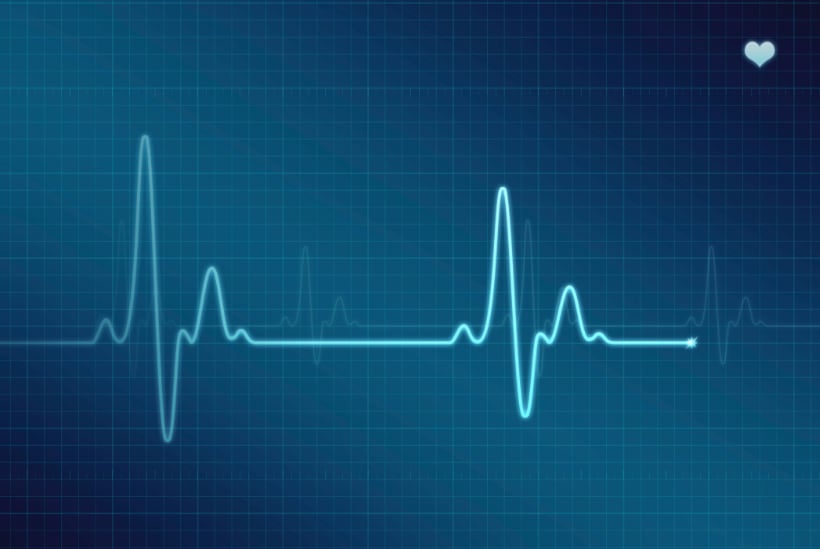 By Dr Jonathan ShurlockEdited by Dr Saadia Aslam PARAGLIDE-HF was presented at Heart Failure 2023, with peer reviewed publication awaited. The rationale, design and baseline characteristics have been published. Patients with HF and ejection fraction (EF) >40%, NT-proBNP levels ≥ 500 pg/mL, and within 30 days of an episode of HF decompensation were eligible and randomised to treatment with sacubitril/valsartan versus valsartan alone. 467 participants were randomised (52% women, age 70 ± 12 years). Median (IQR) EF was 55% (50%–60%). 23% of participants had ‘mildy’ … Read more
By Dr Jonathan ShurlockEdited by Dr Saadia Aslam PARAGLIDE-HF was presented at Heart Failure 2023, with peer reviewed publication awaited. The rationale, design and baseline characteristics have been published. Patients with HF and ejection fraction (EF) >40%, NT-proBNP levels ≥ 500 pg/mL, and within 30 days of an episode of HF decompensation were eligible and randomised to treatment with sacubitril/valsartan versus valsartan alone. 467 participants were randomised (52% women, age 70 ± 12 years). Median (IQR) EF was 55% (50%–60%). 23% of participants had ‘mildy’ … Read more - Today in Heart, the BCS and BJCA publish a joint policy statement to stamp out bullying, harassment, and discrimination in the specialty, endorsed by 19 organisations affiliated with the BCS
 Read the full Heart press statement here: https://heart.bmj.com/lookup/doi/10.1136/heartjnl-2023-322445 The British Junior Cardiologists’ Association (BJCA) and the British Cardiovascular Society (BCS) have issued a joint position statement in a bid to stamp out bullying, harassment, discrimination and other “unacceptable” and “unprofessional” behaviours in the specialty. The statement, published online in the journal Heart, urges every cardiology team member to call out these behaviours to drive culture change. Endorsed by 19 organisations affiliated with the BCS, the statement represents a specialty-wide response to the issue. It comes in the … Read more
Read the full Heart press statement here: https://heart.bmj.com/lookup/doi/10.1136/heartjnl-2023-322445 The British Junior Cardiologists’ Association (BJCA) and the British Cardiovascular Society (BCS) have issued a joint position statement in a bid to stamp out bullying, harassment, discrimination and other “unacceptable” and “unprofessional” behaviours in the specialty. The statement, published online in the journal Heart, urges every cardiology team member to call out these behaviours to drive culture change. Endorsed by 19 organisations affiliated with the BCS, the statement represents a specialty-wide response to the issue. It comes in the … Read more - Calling trainee or ordinary members of the BCS…
 Vacancy for Chair, British Cardiovascular Society Digital and IT Committee Could you be the next Chair of the Digital and IT Committee at a critical point in the BCS’s digital journey? Closing date: Extended until 16 June 2023 The British Cardiovascular Society is looking for a motivated engaged cardiovascular professional in training or a consultant role to Chair the Digital and IT Committee (DITC) meetings and help lead the Digital and IT work stream for the society with steer, support and oversight from the VP … Read more
Vacancy for Chair, British Cardiovascular Society Digital and IT Committee Could you be the next Chair of the Digital and IT Committee at a critical point in the BCS’s digital journey? Closing date: Extended until 16 June 2023 The British Cardiovascular Society is looking for a motivated engaged cardiovascular professional in training or a consultant role to Chair the Digital and IT Committee (DITC) meetings and help lead the Digital and IT work stream for the society with steer, support and oversight from the VP … Read more - BCS congratulates Professor Mark Monaghan on his MBE
 The BCS is delighted that Professor Mark Monaghan, Director of Invasive Cardiology and a consultant clinical scientist at King’s College London, is today receiving an MBE for his outstanding contribution to enhancing patient safety and patient quality of life, through the advancement of high-quality practice in echocardiography. Professor Monaghan is a world-renowned expert in echocardiography and Editor-in-Chief of Echo Research and Practice, the leading academic journal in the field. He is the only non-cardiologist to receive the Mackenzie Medal, the highest honour the BCS can … Read more
The BCS is delighted that Professor Mark Monaghan, Director of Invasive Cardiology and a consultant clinical scientist at King’s College London, is today receiving an MBE for his outstanding contribution to enhancing patient safety and patient quality of life, through the advancement of high-quality practice in echocardiography. Professor Monaghan is a world-renowned expert in echocardiography and Editor-in-Chief of Echo Research and Practice, the leading academic journal in the field. He is the only non-cardiologist to receive the Mackenzie Medal, the highest honour the BCS can … Read more - Key points from the most recent European consensus document on antithrombotic treatment strategies
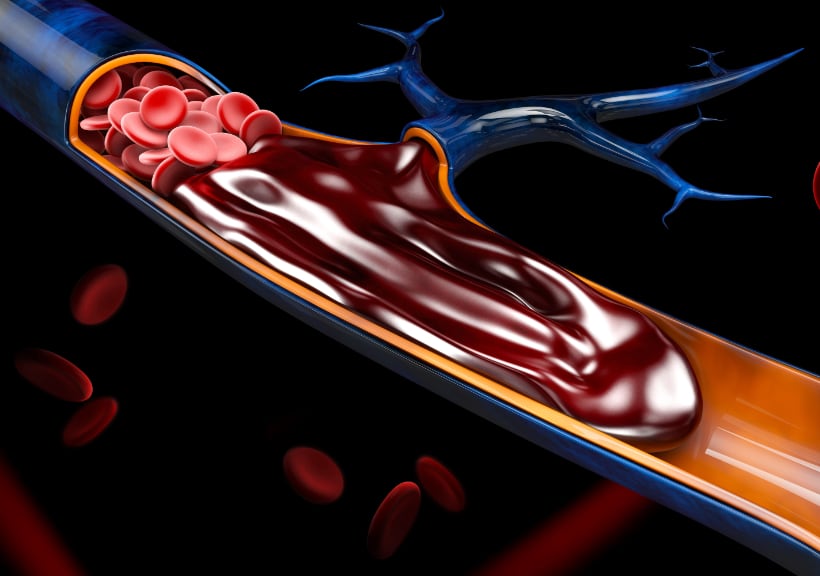 By Dr. Aswin BabuEdited by Dr. Ahmed El-Medany The evidence and landscape around anti-platelet and anticoagulation strategies for established coronary disease continues to evolve and advance at a rapid rate. Thus, the need for a complete document analysing the current contemporary evidence is essential in providing physicians a template for optimal care. Figure 1 – Schema outlining antithrombotic regimens for the whole spectrum of coronary artery disease. Taken from Valgimigli et al (2023) https://shorturl.at/hiDY4. Key points covered by the document include: Link to articlehttps://academic.oup.com/ehjcvp/advance-article/doi/10.1093/ehjcvp/pvad032/7147298
By Dr. Aswin BabuEdited by Dr. Ahmed El-Medany The evidence and landscape around anti-platelet and anticoagulation strategies for established coronary disease continues to evolve and advance at a rapid rate. Thus, the need for a complete document analysing the current contemporary evidence is essential in providing physicians a template for optimal care. Figure 1 – Schema outlining antithrombotic regimens for the whole spectrum of coronary artery disease. Taken from Valgimigli et al (2023) https://shorturl.at/hiDY4. Key points covered by the document include: Link to articlehttps://academic.oup.com/ehjcvp/advance-article/doi/10.1093/ehjcvp/pvad032/7147298 - New EHRA expert consensus on the management of arrhythmia in frailty syndrome
 By Dr. Timothy SwinnEdited by Dr. Ahmed El-Medany The European Heart Rhythm Association has recently released the first consensus statement on management of arrhythmias in frailty syndrome.1 The group recognise that the number of adults over the age of 60 and 80 years are forecast to double and quadruple respectively by 2050, meaning that frailty syndrome will only become more prevalent. Despite this, frail patients are often excluded from trials and addressing this paucity of evidence and guidance is vital. The group discuss varying definitions … Read more
By Dr. Timothy SwinnEdited by Dr. Ahmed El-Medany The European Heart Rhythm Association has recently released the first consensus statement on management of arrhythmias in frailty syndrome.1 The group recognise that the number of adults over the age of 60 and 80 years are forecast to double and quadruple respectively by 2050, meaning that frailty syndrome will only become more prevalent. Despite this, frail patients are often excluded from trials and addressing this paucity of evidence and guidance is vital. The group discuss varying definitions … Read more - Predicting left ventricular ejection fraction improvement after atrial fibrillation ablation
 By Dr Megha AgarwalEdited by Dr Saadia Aslam Atrial fibrillation (AF) and heart failure (HF) often co-exist and in combination are associated with increased mortality. ESC guidelines1 suggest AF ablation for patients with a high probability of tachycardia induced cardiomyopathy. However, there is no objective way of identifying these high-risk patients or estimating the success post procedure. The ANTWOORD investigators2 presented the ANTWERP score to risk stratify HF patients who may benefit from a transcatheter AF ablation, at EHRA late breaking science session. Criterion Score … Read more
By Dr Megha AgarwalEdited by Dr Saadia Aslam Atrial fibrillation (AF) and heart failure (HF) often co-exist and in combination are associated with increased mortality. ESC guidelines1 suggest AF ablation for patients with a high probability of tachycardia induced cardiomyopathy. However, there is no objective way of identifying these high-risk patients or estimating the success post procedure. The ANTWOORD investigators2 presented the ANTWERP score to risk stratify HF patients who may benefit from a transcatheter AF ablation, at EHRA late breaking science session. Criterion Score … Read more - ChatGPT versus the EECC – another win for artificial intelligence?
 By Dr. Ahmed El-Medany A recent study published in the European Heart Journal: Digital Health, by Skalidis et al, has demonstrated the potential of artificial intelligence (AI) language models in medical education. The study aimed to evaluate the accuracy of the AI language model, ChatGPT, in answering questions on the European Exam in Core Cardiology (EECC). The study utilised a training dataset consisting of more than 30 million words of cardiology-related articles, and the model was evaluated using a dataset of 300 questions from the … Read more
By Dr. Ahmed El-Medany A recent study published in the European Heart Journal: Digital Health, by Skalidis et al, has demonstrated the potential of artificial intelligence (AI) language models in medical education. The study aimed to evaluate the accuracy of the AI language model, ChatGPT, in answering questions on the European Exam in Core Cardiology (EECC). The study utilised a training dataset consisting of more than 30 million words of cardiology-related articles, and the model was evaluated using a dataset of 300 questions from the … Read more - Transient very low LDL cholesterol levels reduce risk of major cardiovascular events following ACS
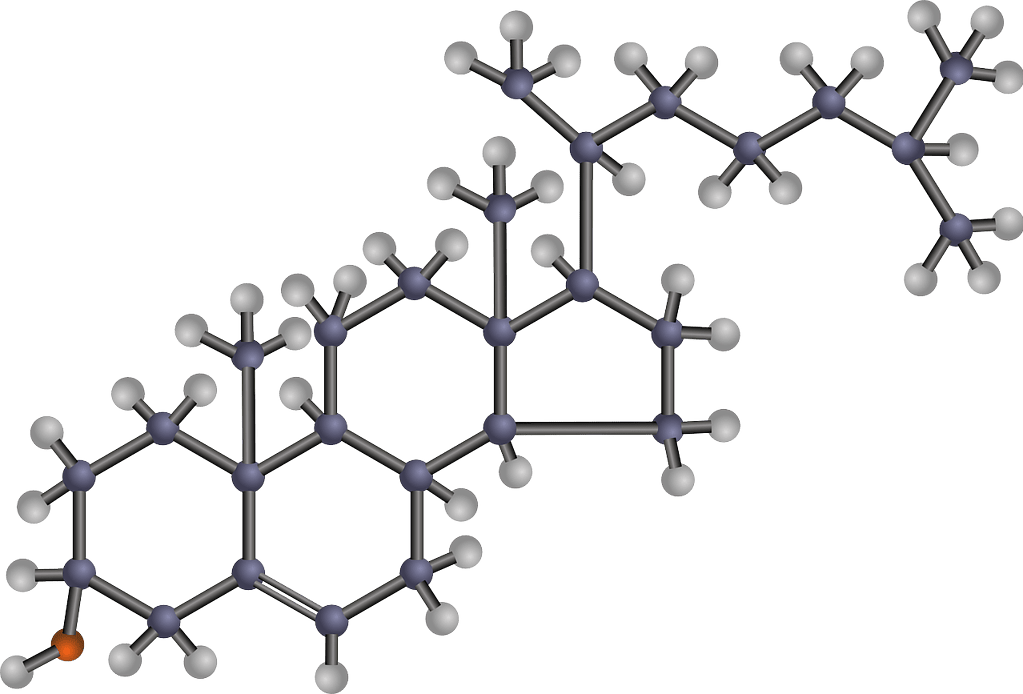 By Dr. Florence MouyEdited by Dr Saadia Aslam The ODYSSEY Outcomes trial in 2018 showed that PCSK9i (proprotein convertase subtilisin/kexin type 9 inhibitor) alirocumab reduced the risk of recurrent ischaemic cardiovascular events in comparison with placebo, in patients on a high dose statin presenting with acute coronary syndrome (ACS). At the time, there were concerns that very low levels of low-density lipoprotein cholesterol (LDL-C) may be harmful to patients, and as such patients with two consecutives LDL-C levels <0.39 mmol/L (15 mg/dL) whilst on alirocumab … Read more
By Dr. Florence MouyEdited by Dr Saadia Aslam The ODYSSEY Outcomes trial in 2018 showed that PCSK9i (proprotein convertase subtilisin/kexin type 9 inhibitor) alirocumab reduced the risk of recurrent ischaemic cardiovascular events in comparison with placebo, in patients on a high dose statin presenting with acute coronary syndrome (ACS). At the time, there were concerns that very low levels of low-density lipoprotein cholesterol (LDL-C) may be harmful to patients, and as such patients with two consecutives LDL-C levels <0.39 mmol/L (15 mg/dL) whilst on alirocumab … Read more - The use of Artificial Intelligence in analysing statin-related sentiments on social media – the perception is mostly neutral, or negative…
 By Dr. Ahmed El-Medany Despite their efficacy and safety profile, statins are underused, even in patients with the highest cardiovascular disease risk. Social media platforms such as Reddit may offer valuable insights into public perceptions and attitudes towards statins. A recent qualitative study published in JAMA Network Open by Somani et al. analysed all statin-related discussions on Reddit between January 2009 and July 2022. The study identified statin- and cholesterol-focused communities and developed an artificial intelligence pipeline to cluster discussions into specific topics and thematic … Read more
By Dr. Ahmed El-Medany Despite their efficacy and safety profile, statins are underused, even in patients with the highest cardiovascular disease risk. Social media platforms such as Reddit may offer valuable insights into public perceptions and attitudes towards statins. A recent qualitative study published in JAMA Network Open by Somani et al. analysed all statin-related discussions on Reddit between January 2009 and July 2022. The study identified statin- and cholesterol-focused communities and developed an artificial intelligence pipeline to cluster discussions into specific topics and thematic … Read more - Are high-power electric vehicle chargers safe in patients with pacemakers and defibrillators?
 By Dr. Ahmed El-Medany A new study published in Europace by Lennerz et al. aimed to evaluate the potential electromagnetic interference (EMI) that high-power charging stations for battery electric vehicles (BEVs) could have on patients with cardiac implantable electronic devices (CIEDs). The study included 130 patients with CIEDs who performed 561 charges of 4 BEVs and a test vehicle using high-power charging stations while under continuous 6-lead electrocardiogram monitoring. The results showed no incidences of EMI, such as over-sensing, pacing inhibition, inappropriate tachycardia detection, mode … Read more
By Dr. Ahmed El-Medany A new study published in Europace by Lennerz et al. aimed to evaluate the potential electromagnetic interference (EMI) that high-power charging stations for battery electric vehicles (BEVs) could have on patients with cardiac implantable electronic devices (CIEDs). The study included 130 patients with CIEDs who performed 561 charges of 4 BEVs and a test vehicle using high-power charging stations while under continuous 6-lead electrocardiogram monitoring. The results showed no incidences of EMI, such as over-sensing, pacing inhibition, inappropriate tachycardia detection, mode … Read more - The AFLETES study: AF burden and risk in veteran athletes
 By Dr Jonathan ShurlockEdited by Dr Ahmed El-Medany It is well understood that endurance athletes are at increased risk of atrial fibrillation (AF) when compared with the general population. The burden and risks of AF in this context however is less established. Dr Pallikadavath and team have attempted to begin to explore this area, with a survey based study of veteran endurance athletes. Inclusion criteria included age of 40 and above and competing in at least 1 competitive endurance event. Additional collected information included demographic … Read more
By Dr Jonathan ShurlockEdited by Dr Ahmed El-Medany It is well understood that endurance athletes are at increased risk of atrial fibrillation (AF) when compared with the general population. The burden and risks of AF in this context however is less established. Dr Pallikadavath and team have attempted to begin to explore this area, with a survey based study of veteran endurance athletes. Inclusion criteria included age of 40 and above and competing in at least 1 competitive endurance event. Additional collected information included demographic … Read more - Mitral regurgitation: aetiology and impact on outcomes post-TAVI
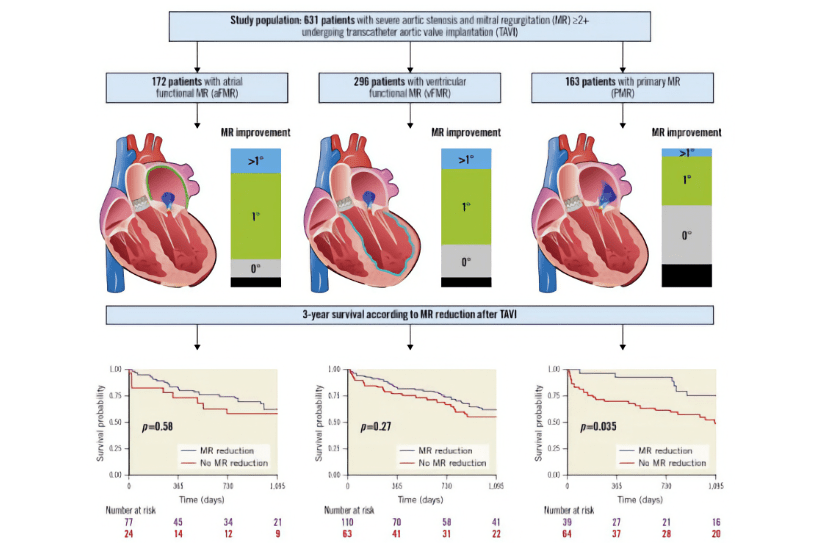 By Dr Jonathan ShurlockEdited by Dr Ahmed El-Medany Up to a third of patients undergoing transcatheter aortic valve implantation (TAVI) have concurrent moderate/severe mitral regurgitation (MR), contributing to a worse prognosis. An interesting observational study in EuroIntervention has explored the impact of different MR aetiologies on individuals undergoing TAVI. Doldi et al. specifically focus on atrial functional MR (aFMR), ventricular functional MR (vFMR), and primary MR (PMR) and look at any changes seen post-TAVI. The study draws from a patient database held at Munich University … Read more
By Dr Jonathan ShurlockEdited by Dr Ahmed El-Medany Up to a third of patients undergoing transcatheter aortic valve implantation (TAVI) have concurrent moderate/severe mitral regurgitation (MR), contributing to a worse prognosis. An interesting observational study in EuroIntervention has explored the impact of different MR aetiologies on individuals undergoing TAVI. Doldi et al. specifically focus on atrial functional MR (aFMR), ventricular functional MR (vFMR), and primary MR (PMR) and look at any changes seen post-TAVI. The study draws from a patient database held at Munich University … Read more - Nomination deadline for BCS officers and committee roles extended due to Easter holidays and junior doctors strike
 Due to the extended Bank Holiday and the forthcoming junior doctors strike, the BCS has taken the decision to extend the deadline for nominations for our officer and committee roles for another week, now closing at 11.59pm on Wednesday 19 April. This will allow more time for applications for these vital roles following this particularly busy time. Do consider if you would like to support us and shape the future of your specialty society. We need committed and enthusiastic members across a wide variety of … Read more
Due to the extended Bank Holiday and the forthcoming junior doctors strike, the BCS has taken the decision to extend the deadline for nominations for our officer and committee roles for another week, now closing at 11.59pm on Wednesday 19 April. This will allow more time for applications for these vital roles following this particularly busy time. Do consider if you would like to support us and shape the future of your specialty society. We need committed and enthusiastic members across a wide variety of … Read more - Salt consumption associated with coronary and carotid atherosclerosis, prior to hypertension
 By Dr Jonathan ShurlockEdited by Dr Ahmed El-Medany Previous evidence has suggested an association between increased salt intake and carotid artery atherosclerosis, with less data available for the relationship with coronary atherosclerosis. Dr Jonas Wuopio and colleagues have sought to further explore this relationship through a sub-analysis of the Swedish CArdioPulmonary bioImage Study (SCAPIS). SCAPIS is an open-access, population-based cohort study, with the aim of studying both cardiovascular and chronic obstructive pulmonary disease. The study has recruited 30,154 Swedish participants aged from 50 to 64 … Read more
By Dr Jonathan ShurlockEdited by Dr Ahmed El-Medany Previous evidence has suggested an association between increased salt intake and carotid artery atherosclerosis, with less data available for the relationship with coronary atherosclerosis. Dr Jonas Wuopio and colleagues have sought to further explore this relationship through a sub-analysis of the Swedish CArdioPulmonary bioImage Study (SCAPIS). SCAPIS is an open-access, population-based cohort study, with the aim of studying both cardiovascular and chronic obstructive pulmonary disease. The study has recruited 30,154 Swedish participants aged from 50 to 64 … Read more - Quantifying radiation exposure for interventional echocardiographers
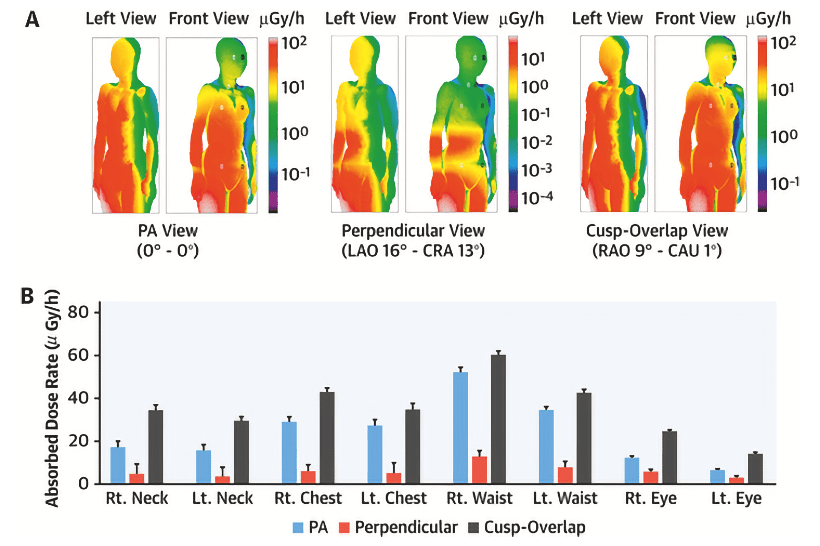 By Dr Jonathan ShurlockEdited by Dr Ahmed El-Medany Radiation exposure is a core consideration during any procedural cardiology intervention, for both the patient and the operating team. The burden of exposure for interventional echocardiographers during structural intervention is a little explored topic, with important ramifications for long term health. A group of authors in Japan, led by Dr Akihisa Kataoka, have recently begun to shed some light on this area and published their work in JACC: Asia. The study measured real-life radiation exposure during structural … Read more
By Dr Jonathan ShurlockEdited by Dr Ahmed El-Medany Radiation exposure is a core consideration during any procedural cardiology intervention, for both the patient and the operating team. The burden of exposure for interventional echocardiographers during structural intervention is a little explored topic, with important ramifications for long term health. A group of authors in Japan, led by Dr Akihisa Kataoka, have recently begun to shed some light on this area and published their work in JACC: Asia. The study measured real-life radiation exposure during structural … Read more - BHF CRC launches a National Cardiovascular Clinical Research Database
 The BHF Clinical Research Collaborative (BHF CRC), which is hosted by the BCS, has launched a National Cardiovascular Clinical Research Database as part of its continuing commitment to encourage wider participation in research. The database provides an opportunity to link clinicians, academics, patients and family members, funders and specialist industrial partners which will help coordinate research activity in the UK. One of the key strategic aims is to promote the wider benefits of research activity, ensuring the views of patients and clinicians are encouraged and heard alongside academics and … Read more
The BHF Clinical Research Collaborative (BHF CRC), which is hosted by the BCS, has launched a National Cardiovascular Clinical Research Database as part of its continuing commitment to encourage wider participation in research. The database provides an opportunity to link clinicians, academics, patients and family members, funders and specialist industrial partners which will help coordinate research activity in the UK. One of the key strategic aims is to promote the wider benefits of research activity, ensuring the views of patients and clinicians are encouraged and heard alongside academics and … Read more - High-intensity exercise is a HIIT in UK cardiac rehab
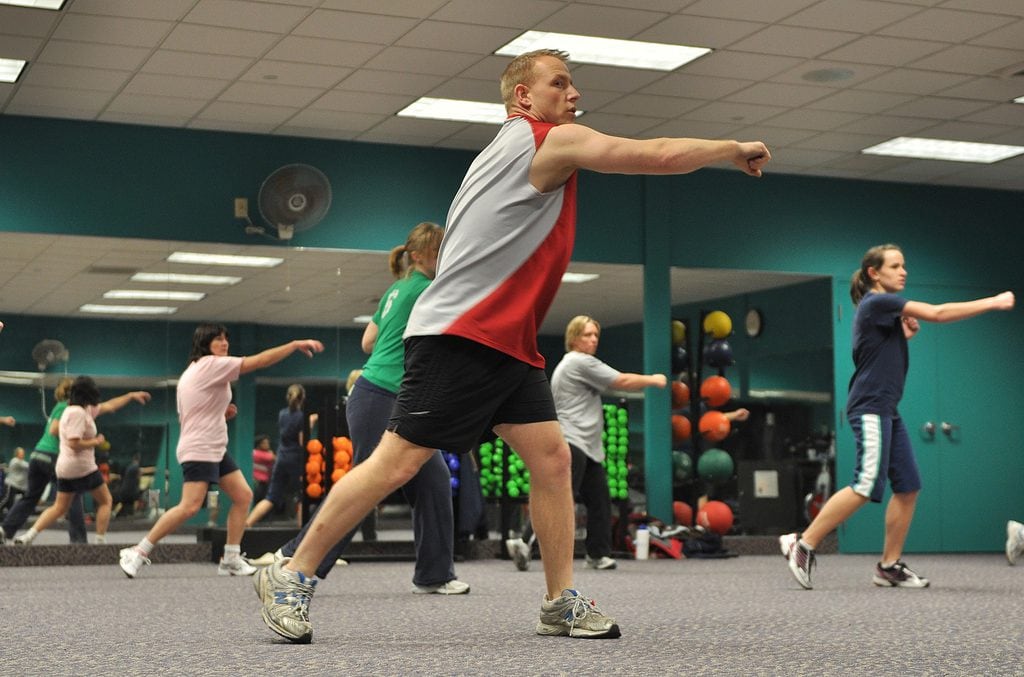 By Dr. Timothy Swinn The HIIT or MISS UK trial has shown that an 8-week low-volume High-Intensity Interval Training (HIIT) cardiac rehab programme led to a greater increase in VO2peak at 8 weeks compared to normal cardiac rehab prescription of Moderate-Intensity Steady State exercise (MISS)(1). Furthermore, HIIT appeared to be safe, with only 1 adverse event possibly linked to exercise (namely an episode of atrial fibrillation with fast ventricular response). These results may have implications for cardiac rehabilitation in the UK, where most regimens use … Read more
By Dr. Timothy Swinn The HIIT or MISS UK trial has shown that an 8-week low-volume High-Intensity Interval Training (HIIT) cardiac rehab programme led to a greater increase in VO2peak at 8 weeks compared to normal cardiac rehab prescription of Moderate-Intensity Steady State exercise (MISS)(1). Furthermore, HIIT appeared to be safe, with only 1 adverse event possibly linked to exercise (namely an episode of atrial fibrillation with fast ventricular response). These results may have implications for cardiac rehabilitation in the UK, where most regimens use … Read more - Another win for TAVI: safety and durability demonstrated in low risk patients
 By Dr Aswin Babu The Evolut Low Risk trial aimed to characterise short to medium-term outcomes of patients with low-risk severe aortic stenosis undergoing transcatheter aortic valve implantation (TAVI) with a CoreValve Evolut valve. Low risk was identified as a 3% risk of death within 30 days of the procedure using the Society of Thoracic Surgeons (STS) score. Patients with a bicuspid aortic valve or anatomical contraindications to either TAVI or a surgical bioprothesis were excluded such as a significant annular calcification. Additionally, patients with … Read more
By Dr Aswin Babu The Evolut Low Risk trial aimed to characterise short to medium-term outcomes of patients with low-risk severe aortic stenosis undergoing transcatheter aortic valve implantation (TAVI) with a CoreValve Evolut valve. Low risk was identified as a 3% risk of death within 30 days of the procedure using the Society of Thoracic Surgeons (STS) score. Patients with a bicuspid aortic valve or anatomical contraindications to either TAVI or a surgical bioprothesis were excluded such as a significant annular calcification. Additionally, patients with … Read more - RENOVATE-COMPLEX-PCI: Should intra-coronary imaging be routine practice?
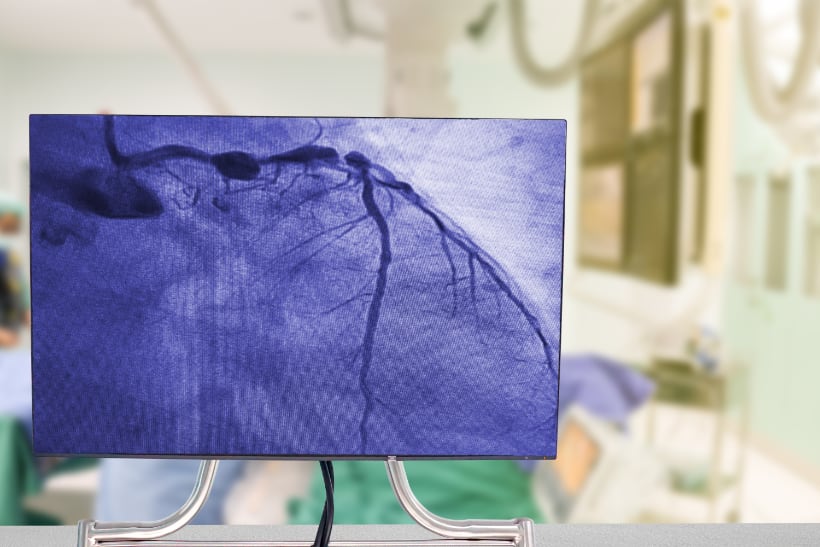 By Dr Aswin Babu Intra-coronary imaging plays a vital role in assessing lesions and their characteristics. This allows for optimal stent selection and deployment. Thus, intuitively, this results in reduction in major adverse cardiovascular events (MACE), target lesion revascularisation (TLR) and even all-cause mortality as evidence by the IVUS-XPL, ULTIMATE and COREA-AMI data1,2,3. The RENOVATE-COMPLEX-PCI trial was a randomised, multi-centre, open-label trial assessing differences in outcomes in patients with complex coronary disease undergoing intracoronary imaging guided percutaneous coronary intervention (PCI) versus angiographically guided PCI. Complex … Read more
By Dr Aswin Babu Intra-coronary imaging plays a vital role in assessing lesions and their characteristics. This allows for optimal stent selection and deployment. Thus, intuitively, this results in reduction in major adverse cardiovascular events (MACE), target lesion revascularisation (TLR) and even all-cause mortality as evidence by the IVUS-XPL, ULTIMATE and COREA-AMI data1,2,3. The RENOVATE-COMPLEX-PCI trial was a randomised, multi-centre, open-label trial assessing differences in outcomes in patients with complex coronary disease undergoing intracoronary imaging guided percutaneous coronary intervention (PCI) versus angiographically guided PCI. Complex … Read more - Safety and performance of the ESC 0-1-hour algorithm
 By Dr Jonathan Shurlock STOP-CP, was a prospective observational multicentre study that enrolled 3,181 patients presenting to the emergency department with symptoms suggestive of acute coronary syndrome (ACS) with the aim to establish the safety and efficacy of high sensitivity cardiac troponin T (hs-cTnT) in this setting. A subgroup analysis of 1430 participants of the STOP-CP trial (mean age 57.6 ±12.8 years) without ST-segment elevation on presenting ECG was performed. The ESC 0/1-hour algorithm classifies individuals into 3 groups; Rule-in, Observe, and Rule-Out. 178 of 449 … Read more
By Dr Jonathan Shurlock STOP-CP, was a prospective observational multicentre study that enrolled 3,181 patients presenting to the emergency department with symptoms suggestive of acute coronary syndrome (ACS) with the aim to establish the safety and efficacy of high sensitivity cardiac troponin T (hs-cTnT) in this setting. A subgroup analysis of 1430 participants of the STOP-CP trial (mean age 57.6 ±12.8 years) without ST-segment elevation on presenting ECG was performed. The ESC 0/1-hour algorithm classifies individuals into 3 groups; Rule-in, Observe, and Rule-Out. 178 of 449 … Read more - Cardiac waiting lists continue to grow
 By Dr Jonathan ShurlockEdited by: Dr Saadia Aslam The British Heart Foundation has responded to recent figures released from NHS England outlining the increasing waiting time for patients to receive heart related healthcare. While this has been recognised across all areas of the NHS, the data shows a continuing deterioration in cardiac waiting lists. According to NHS England the number of people on such waiting lists has reached a new high of 369,204 as of the end of January 2023, in England alone. This equates … Read more
By Dr Jonathan ShurlockEdited by: Dr Saadia Aslam The British Heart Foundation has responded to recent figures released from NHS England outlining the increasing waiting time for patients to receive heart related healthcare. While this has been recognised across all areas of the NHS, the data shows a continuing deterioration in cardiac waiting lists. According to NHS England the number of people on such waiting lists has reached a new high of 369,204 as of the end of January 2023, in England alone. This equates … Read more - Light and moderate intensity exercise safe in patients with arrhythmogenic cardiomyopathy
 By Dr. Florence Mouy, edited by Dr. Ahmed El-Medany A recently published study by Ramos-Maqueda et al. has found that light to moderate intensity physical activity (PA) does not increase the risk of arrhythmias in patients with arrhythmogenic cardiomyopathy (ACM). Sixty-three patients were included in this observational study, with 50% of participants having left ventricular predominant ACM. PA was continuously monitored for 30 days using accelerometers worn day and night by participants and compared with rates of rapid-rate non-sustained ventricular tachycardia (RR-NSVT), known to be … Read more
By Dr. Florence Mouy, edited by Dr. Ahmed El-Medany A recently published study by Ramos-Maqueda et al. has found that light to moderate intensity physical activity (PA) does not increase the risk of arrhythmias in patients with arrhythmogenic cardiomyopathy (ACM). Sixty-three patients were included in this observational study, with 50% of participants having left ventricular predominant ACM. PA was continuously monitored for 30 days using accelerometers worn day and night by participants and compared with rates of rapid-rate non-sustained ventricular tachycardia (RR-NSVT), known to be … Read more - Pregnancy complications and long term cardiovascular disease risk
 By Dr Jonathan Shurlock A new study published in the British Medical Journal has found that women who experience complications during pregnancy, such as pre-eclampsia or gestational diabetes, have a higher risk of developing heart disease later in life. The study, conducted by researchers at the University of Cambridge, analysed data from over one million women in the UK who had given birth between 1997 and 2018. The study followed the women for an average of 11 years after their last pregnancy, during which time … Read more
By Dr Jonathan Shurlock A new study published in the British Medical Journal has found that women who experience complications during pregnancy, such as pre-eclampsia or gestational diabetes, have a higher risk of developing heart disease later in life. The study, conducted by researchers at the University of Cambridge, analysed data from over one million women in the UK who had given birth between 1997 and 2018. The study followed the women for an average of 11 years after their last pregnancy, during which time … Read more - LAAO versus anticoagulation for AF: Can ‘real world data’ replace randomised trials?
 By Dr. Jonathan Shurlock A recent publication in Circulation has generated online discussion regarding the use of so-called real-world data, the use of Medicare claims as a data source, the importance of true randomisation, and potential impact of bias on survival curves. The study compared outcomes in patients with atrial fibrillation (AF) who either had standard treatment with anticoagulation or underwent left atrial appendage occlusion (LAAO). The authors highlighted their focus on so called real-world data in an attempt to account for differences in anticoagulation … Read more
By Dr. Jonathan Shurlock A recent publication in Circulation has generated online discussion regarding the use of so-called real-world data, the use of Medicare claims as a data source, the importance of true randomisation, and potential impact of bias on survival curves. The study compared outcomes in patients with atrial fibrillation (AF) who either had standard treatment with anticoagulation or underwent left atrial appendage occlusion (LAAO). The authors highlighted their focus on so called real-world data in an attempt to account for differences in anticoagulation … Read more - Exercise intensity but not exercise volume associated with progression of coronary artery disease over 6-year follow up
 By Dr. Timothy Swinn, edited by Dr. Ahmed El-Medany The MARC-2 study (‘Measuring athlete’s risk of cardiovascular events’) recently published in Circulation has revealed a correlation between increasing exercise intensity and progression of coronary artery disease over 6.3+-0.5 years of follow up1. The MARC-1 study, published in 20172, studied middle-aged/older males and found that the most active group by exercise volume had the highest prevalence of atherosclerotic plaques and highest coronary artery calcium score. This follow-up study invited the same cohort to assess how exercise … Read more
By Dr. Timothy Swinn, edited by Dr. Ahmed El-Medany The MARC-2 study (‘Measuring athlete’s risk of cardiovascular events’) recently published in Circulation has revealed a correlation between increasing exercise intensity and progression of coronary artery disease over 6.3+-0.5 years of follow up1. The MARC-1 study, published in 20172, studied middle-aged/older males and found that the most active group by exercise volume had the highest prevalence of atherosclerotic plaques and highest coronary artery calcium score. This follow-up study invited the same cohort to assess how exercise … Read more - Does personalised and accelerated pacing have an impact on patients with heart failure with preserved ejection fraction? – The myPACE trial
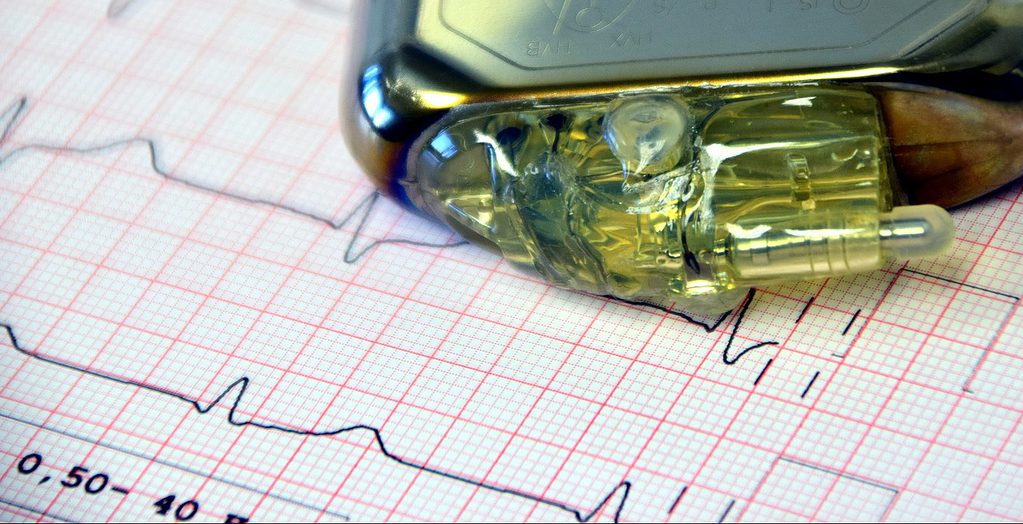 By Dr Jonathan Shurlock, edited by Dr Ahmed El-Medany Dr Margaret Infield and colleagues have explored the role of accelerated pacing, with personalised backup heart rates, in patients with heart failure with preserved ejection fraction (HFpEF) and pre-existing pacemakers. The group set out to identify the impact of adjusted pacing settings on quality of life, activity levels, and atrial fibrillation (AF) burden. The trial was blinded and randomised and enrolled patients from the University of Vermont Medical Centre pacemaker clinic. 170 participants were randomised into … Read more
By Dr Jonathan Shurlock, edited by Dr Ahmed El-Medany Dr Margaret Infield and colleagues have explored the role of accelerated pacing, with personalised backup heart rates, in patients with heart failure with preserved ejection fraction (HFpEF) and pre-existing pacemakers. The group set out to identify the impact of adjusted pacing settings on quality of life, activity levels, and atrial fibrillation (AF) burden. The trial was blinded and randomised and enrolled patients from the University of Vermont Medical Centre pacemaker clinic. 170 participants were randomised into … Read more - Improving heart health vital says Her Royal Highness The Princess Royal at centenary reception
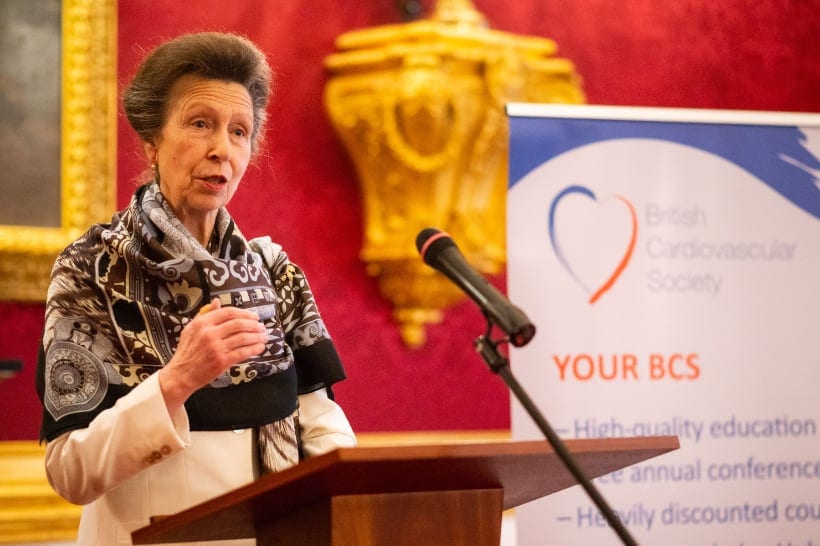 Her Royal Highness The Princess Royal underlined the importance of improving heart health in the population at a reception on Thursday 2 February to celebrate the centenary of the British Cardiovascular Society. Speaking to an audience of cardiologists, other cardiovascular healthcare professionals, patient representatives, and supporters of the work of BCS, The Princess Royal emphasised the importance of supporting everyone to look after their heart to prevent death and disease in later life. As Royal Patron for the centenary year of the Society, The Princess … Read more
Her Royal Highness The Princess Royal underlined the importance of improving heart health in the population at a reception on Thursday 2 February to celebrate the centenary of the British Cardiovascular Society. Speaking to an audience of cardiologists, other cardiovascular healthcare professionals, patient representatives, and supporters of the work of BCS, The Princess Royal emphasised the importance of supporting everyone to look after their heart to prevent death and disease in later life. As Royal Patron for the centenary year of the Society, The Princess … Read more - Professor Jane Somerville receives the BCS Mackenzie Medal from HRH The Princess Royal
 At a reception to celebrate the centenary of the British Cardiovascular Society, Her Royal Highness The Princess Royal presented the Society’s highest honour, the Mackenzie medal, to Professor Jane Somerville. Professor Somerville is emeritus professor of cardiology, Imperial College and one of Britain’s most eminent physicians. Her Royal Highness listed some of Jane’s groundbreaking achievements which improved care for thousands of patients: The Mackenzie Medal is named after Sir James Mackenzie, a Scottish cardiologist who pioneered the study of cardiac arrhythmias, and is the Society’s … Read more
At a reception to celebrate the centenary of the British Cardiovascular Society, Her Royal Highness The Princess Royal presented the Society’s highest honour, the Mackenzie medal, to Professor Jane Somerville. Professor Somerville is emeritus professor of cardiology, Imperial College and one of Britain’s most eminent physicians. Her Royal Highness listed some of Jane’s groundbreaking achievements which improved care for thousands of patients: The Mackenzie Medal is named after Sir James Mackenzie, a Scottish cardiologist who pioneered the study of cardiac arrhythmias, and is the Society’s … Read more - A wearable cardiac ultrasound patch for continuous and active monitoring
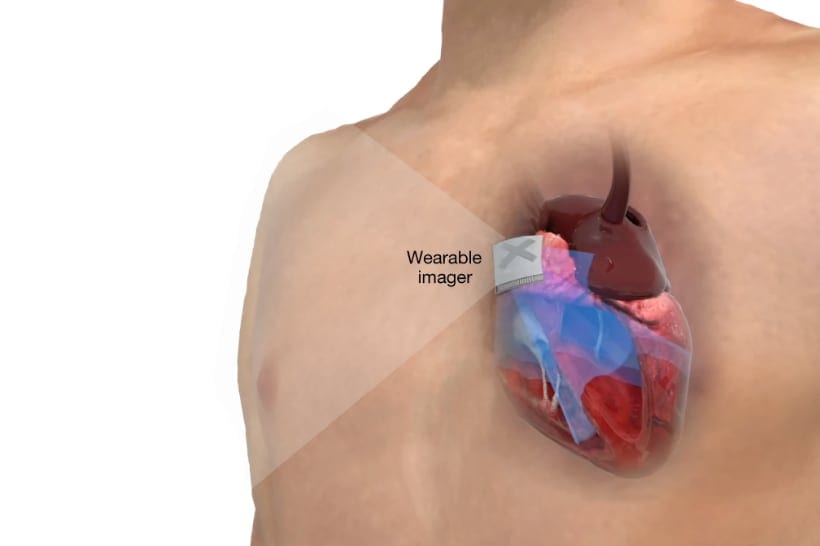 By Dr Jonathan Shurlock A recent research briefing in Nature has described a ‘wearable ultrasonic device’, around the size of a postage stamp. The authors describe their device and its intended role in continuous imaging of cardiac function. They propose that the designed device overcomes the issue of bulky machines preventing continuous monitoring and the current limitations of other wearable cardiac devices (i.e. limited to signals on skin). See the full report here for the technical details of the device. In brief, the device is … Read more
By Dr Jonathan Shurlock A recent research briefing in Nature has described a ‘wearable ultrasonic device’, around the size of a postage stamp. The authors describe their device and its intended role in continuous imaging of cardiac function. They propose that the designed device overcomes the issue of bulky machines preventing continuous monitoring and the current limitations of other wearable cardiac devices (i.e. limited to signals on skin). See the full report here for the technical details of the device. In brief, the device is … Read more - Early use of Extracorporeal CPR shows no signal in improving outcomes in Out of Hospital cardiac arrests
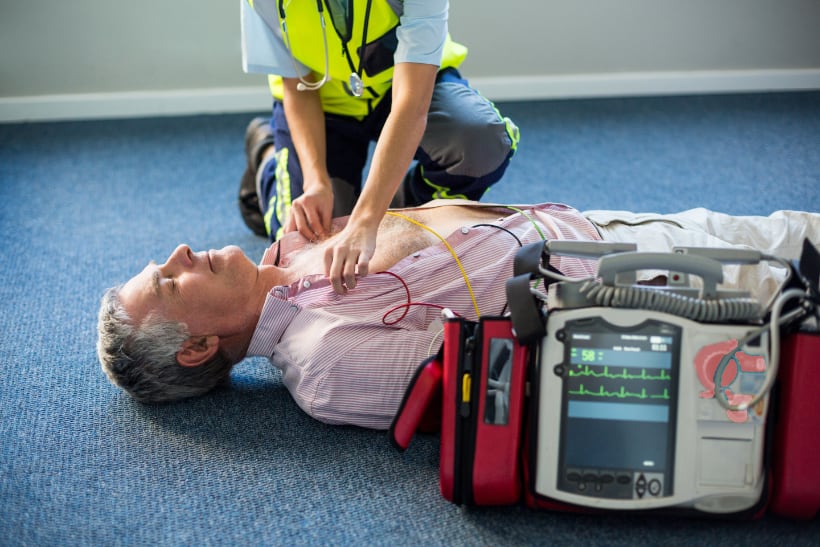 By Dr Aswin Babu In the United Kingdom (UK), there are around 30,000 out of hospital (OOH) cardiac arrests each year attended by paramedics. However, survival rates remain staggeringly low with a survival rate estimated at 10%. In order to shift the curve on these outcomes, studies have examined the role of early use of extracorporeal cardio-pulmonary resuscitation (CPR) when rivalled to standard CPR. In particular, the ‘ARREST’ trial demonstrated significant improvement in survival to hospital discharge with extracorporeal CPR whereas the ‘Prague OHCA’ study … Read more
By Dr Aswin Babu In the United Kingdom (UK), there are around 30,000 out of hospital (OOH) cardiac arrests each year attended by paramedics. However, survival rates remain staggeringly low with a survival rate estimated at 10%. In order to shift the curve on these outcomes, studies have examined the role of early use of extracorporeal cardio-pulmonary resuscitation (CPR) when rivalled to standard CPR. In particular, the ‘ARREST’ trial demonstrated significant improvement in survival to hospital discharge with extracorporeal CPR whereas the ‘Prague OHCA’ study … Read more - A new role for PET-CT in primary hyperaldosteronism driven hypertension
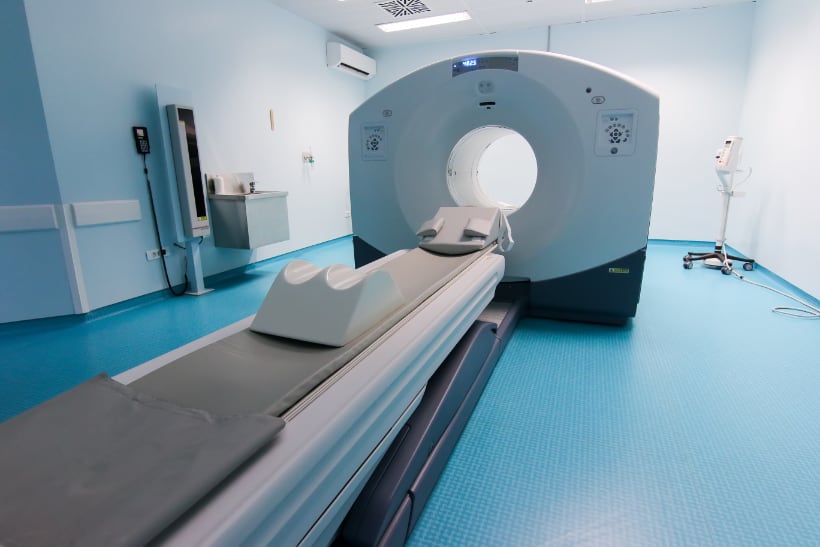 By Dr Jonathan Shurlock, edited by Dr. Ahmed El-Medany Primary aldosteronism (PA) is estimated to be the driver of hypertension in 5-10% of cases, resulting from a gene mutation causing excess aldosterone production. When recognised, unilateral adenomas can be excised surgically. Currently this option is offered to fewer than 1% of relevant patients. One of the barriers to this is the invasive nature of detection and prediction of biochemical remission and clinical resolution post-surgery. The current technique (adrenal vein sampling) has limited availability and is … Read more
By Dr Jonathan Shurlock, edited by Dr. Ahmed El-Medany Primary aldosteronism (PA) is estimated to be the driver of hypertension in 5-10% of cases, resulting from a gene mutation causing excess aldosterone production. When recognised, unilateral adenomas can be excised surgically. Currently this option is offered to fewer than 1% of relevant patients. One of the barriers to this is the invasive nature of detection and prediction of biochemical remission and clinical resolution post-surgery. The current technique (adrenal vein sampling) has limited availability and is … Read more - ACTIVE-AF – exercise and its role in AF symptom burden
 By Dr Jonathan Shurlock Recurrence of arrhythmia and symptom severity are important patient centred outcomes for individuals with symptomatic atrial fibrillation (AF). A research group led by Dr Prashanthan Sanders have explored the role of supervised exercise and home based physical activity in reducing recurrent arrhythmia and symptom severity. The work first presented at the ESC 2021 congress is now published in JACC: Clinical Electrophysiology. The authors randomised 120 patients with symptomatic AF (paroxysmal or persistent) 1:1 to an exercise intervention group and a usual … Read more
By Dr Jonathan Shurlock Recurrence of arrhythmia and symptom severity are important patient centred outcomes for individuals with symptomatic atrial fibrillation (AF). A research group led by Dr Prashanthan Sanders have explored the role of supervised exercise and home based physical activity in reducing recurrent arrhythmia and symptom severity. The work first presented at the ESC 2021 congress is now published in JACC: Clinical Electrophysiology. The authors randomised 120 patients with symptomatic AF (paroxysmal or persistent) 1:1 to an exercise intervention group and a usual … Read more - Evidence for a new approach to device pocket infections
 By Dr Jonathan Shurlock Localised device pocket infections are a well reported complication of cardiovascular implantable electronic device (CIED) implantation, with associated increased morbidity. Current guidelines highlight the importance of “Complete removal” in order to adequately treat infections. Dr Moris Topaz has led a group exploring the role of continuous, in-situ targeted, ultrahigh concentration of antibiotics (CITA) into the subcutaneous device pocket, in the context of infection. This work was done in an attempt to identify whether device and lead extraction could be avoided in … Read more
By Dr Jonathan Shurlock Localised device pocket infections are a well reported complication of cardiovascular implantable electronic device (CIED) implantation, with associated increased morbidity. Current guidelines highlight the importance of “Complete removal” in order to adequately treat infections. Dr Moris Topaz has led a group exploring the role of continuous, in-situ targeted, ultrahigh concentration of antibiotics (CITA) into the subcutaneous device pocket, in the context of infection. This work was done in an attempt to identify whether device and lead extraction could be avoided in … Read more - A spotlight on out of hospital cardiac arrest
 By Dr Jonathan Shurlock NFL player Damar Hamlin suffered a cardiac arrest after making a tackle during a live game in a televised moment that has been widely discussed since. Hamlin received around 10 minutes of CPR on the pitch before being moved to an ambulance and transferred to University of Cincinnati Medical Center. There has been no further update regarding his clinical condition. There has been widespread speculation regarding the aetiology of Hamlin’s cardiac arrest, from a wide variety of clinicians and other individuals. … Read more
By Dr Jonathan Shurlock NFL player Damar Hamlin suffered a cardiac arrest after making a tackle during a live game in a televised moment that has been widely discussed since. Hamlin received around 10 minutes of CPR on the pitch before being moved to an ambulance and transferred to University of Cincinnati Medical Center. There has been no further update regarding his clinical condition. There has been widespread speculation regarding the aetiology of Hamlin’s cardiac arrest, from a wide variety of clinicians and other individuals. … Read more - Pulmonary artery denervation shows promise in treating Group 1 Pulmonary Artery Hypertension – The PADN-CFDA trial
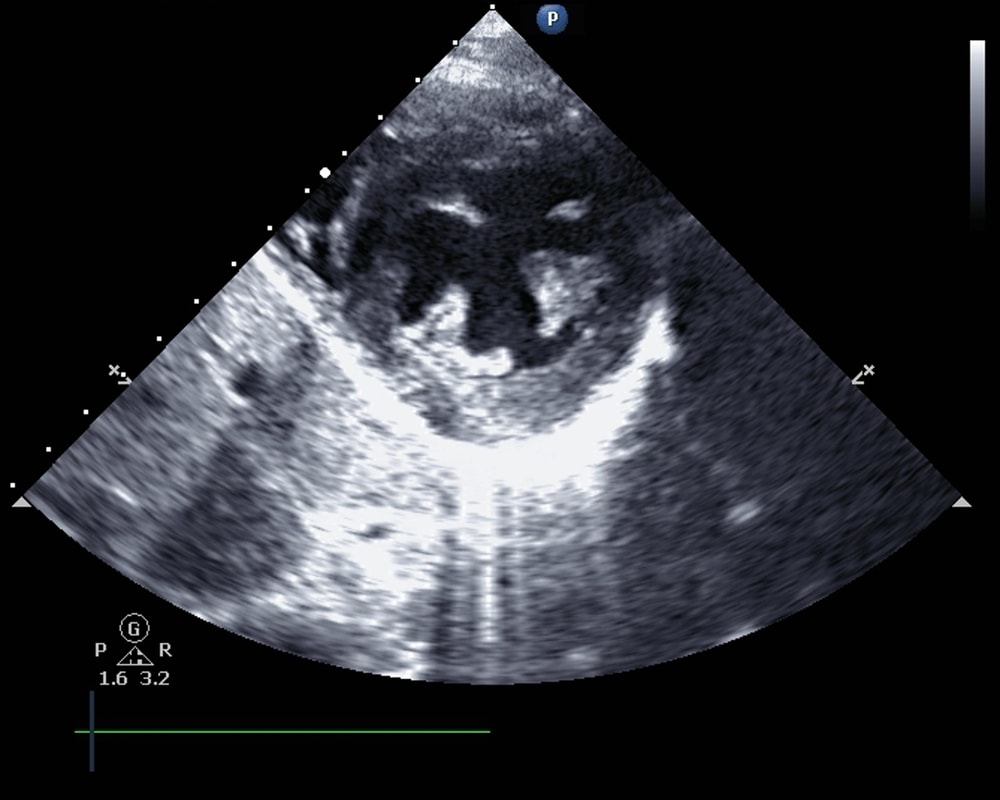 By Dr. Aswin Babu Previous observational studies have signalled towards a benefit for pulmonary artery denervation (PADN) in treating pulmonary artery hypertension (PAH). However, to date, there are no randomised controlled trials (RCsT) in this field. The PADN-CFA (Pulmonary Artery Denervation for Pulmonary Arterial Hypertension: A Sham-Controlled Randomized trial) strives to answer the question whether PADN is superior when compared to medical therapy alone. In this multi-centre, single-blinded trial, 128 patients with World Health Organisation (WHO) group 1 PAH were randomised in a 1:1 fashion … Read more
By Dr. Aswin Babu Previous observational studies have signalled towards a benefit for pulmonary artery denervation (PADN) in treating pulmonary artery hypertension (PAH). However, to date, there are no randomised controlled trials (RCsT) in this field. The PADN-CFA (Pulmonary Artery Denervation for Pulmonary Arterial Hypertension: A Sham-Controlled Randomized trial) strives to answer the question whether PADN is superior when compared to medical therapy alone. In this multi-centre, single-blinded trial, 128 patients with World Health Organisation (WHO) group 1 PAH were randomised in a 1:1 fashion … Read more - A Career in Cardiology: A Toolkit for Success
 By Dr Jonathan Shurlock and Dr Tim Swinn Highlights from the “Career in Cardiology” chaired by Dr Kalpa da Silva and Dr Fu Siong Ng, at the Royal College of Physicians included: Maximising points on ST4 applications The suggestions included to review the JRCTPB application scoring guide early and regularly in case of changes to the scoring system and to be realistic and focus on achievable points, taking into consideration the application deadlines. Greater emphasis on “suitability for Med Reg role” during the interviews and … Read more
By Dr Jonathan Shurlock and Dr Tim Swinn Highlights from the “Career in Cardiology” chaired by Dr Kalpa da Silva and Dr Fu Siong Ng, at the Royal College of Physicians included: Maximising points on ST4 applications The suggestions included to review the JRCTPB application scoring guide early and regularly in case of changes to the scoring system and to be realistic and focus on achievable points, taking into consideration the application deadlines. Greater emphasis on “suitability for Med Reg role” during the interviews and … Read more - Women in Cardiology: A BCS Update
 By Dr Jonathan Shurlock A BCS editorial has recently been published, focussing on women in cardiology. The two authors Dr Khadija Amanullah and Raheel Ahmed focus on the progress made in this area and discuss the ongoing challenges. The key findings are summarised in 4 “take home messages”: The authors discuss the progress made since the previous BCS women in cardiology editorial in 2019. In addition, they outline the current challenges for women working in cardiology and suggestions for attempting to overcome them. While the … Read more
By Dr Jonathan Shurlock A BCS editorial has recently been published, focussing on women in cardiology. The two authors Dr Khadija Amanullah and Raheel Ahmed focus on the progress made in this area and discuss the ongoing challenges. The key findings are summarised in 4 “take home messages”: The authors discuss the progress made since the previous BCS women in cardiology editorial in 2019. In addition, they outline the current challenges for women working in cardiology and suggestions for attempting to overcome them. While the … Read more - The rising incidence of heart failure in the young – a worrying trend
 By Megha Agarwal A recent French nationwide cohort study identified 1,486,877 patients who were hospitalised for heart failure during 2013 and 2018. Of these, 70,075 (~5%) patients were between the ages of 18 and 50. Data showed that the year-on-year incidence of heart failure in the general population decreased. However, when broken down by age group, there was a significant increase in heart failure in young adults, particularly males aged 36-50 years. The type of heart failure tended to be of ischaemic aetiology, and a … Read more
By Megha Agarwal A recent French nationwide cohort study identified 1,486,877 patients who were hospitalised for heart failure during 2013 and 2018. Of these, 70,075 (~5%) patients were between the ages of 18 and 50. Data showed that the year-on-year incidence of heart failure in the general population decreased. However, when broken down by age group, there was a significant increase in heart failure in young adults, particularly males aged 36-50 years. The type of heart failure tended to be of ischaemic aetiology, and a … Read more - IRONMAN trial: does IV iron confer a clinically meaningful benefit?
 By Dr. Timothy Swinn, edited by Dr. Ahmed El-Medany Results from the IRONMAN trial1, recently released in the LANCET, have demonstrated a lower rate of hospital admissions due to heart failure and cardiovascular death with intravenous (IV) ferric derisomaltose which didn’t quite reach statistical significance. IRONMAN was a prospective, randomised, open-label, blinded-endpoint trial designed to assess the long-term effects of repeated doses of IV ferric derisomaltose on heart failure hospital admissions and cardiovascular death in patients with heart failure with reduced ejection fraction (HFrEF). Patients … Read more
By Dr. Timothy Swinn, edited by Dr. Ahmed El-Medany Results from the IRONMAN trial1, recently released in the LANCET, have demonstrated a lower rate of hospital admissions due to heart failure and cardiovascular death with intravenous (IV) ferric derisomaltose which didn’t quite reach statistical significance. IRONMAN was a prospective, randomised, open-label, blinded-endpoint trial designed to assess the long-term effects of repeated doses of IV ferric derisomaltose on heart failure hospital admissions and cardiovascular death in patients with heart failure with reduced ejection fraction (HFrEF). Patients … Read more - Exploring the role of Catheter-Directed Thrombolysis for Pulmonary Embolism
 By Dr. Jonathan Shurlock Following our summary of the ESC position statement (ESC position statement on percutaneous treatment of pulmonary embolism – BCS Heartbeat (cardionewsuk.org)) the results of the discussed Catheter-Directed Thrombolysis vs Anticoagulation in Patients With Acute Intermediate-High–risk Pulmonary Embolism (CANARY) randomised trial have recently been published. The study was an open-label randomised clinical trial across 2 cardiovascular centres. Catheter directed thrombolysis was delivered with alteplase. While the study was prematurely terminated, the authors randomised 94 patients with intermediate to high-risk PE into receiving … Read more
By Dr. Jonathan Shurlock Following our summary of the ESC position statement (ESC position statement on percutaneous treatment of pulmonary embolism – BCS Heartbeat (cardionewsuk.org)) the results of the discussed Catheter-Directed Thrombolysis vs Anticoagulation in Patients With Acute Intermediate-High–risk Pulmonary Embolism (CANARY) randomised trial have recently been published. The study was an open-label randomised clinical trial across 2 cardiovascular centres. Catheter directed thrombolysis was delivered with alteplase. While the study was prematurely terminated, the authors randomised 94 patients with intermediate to high-risk PE into receiving … Read more - Rapid identification of myocarditis: the first evidence for a diagnostic blood test
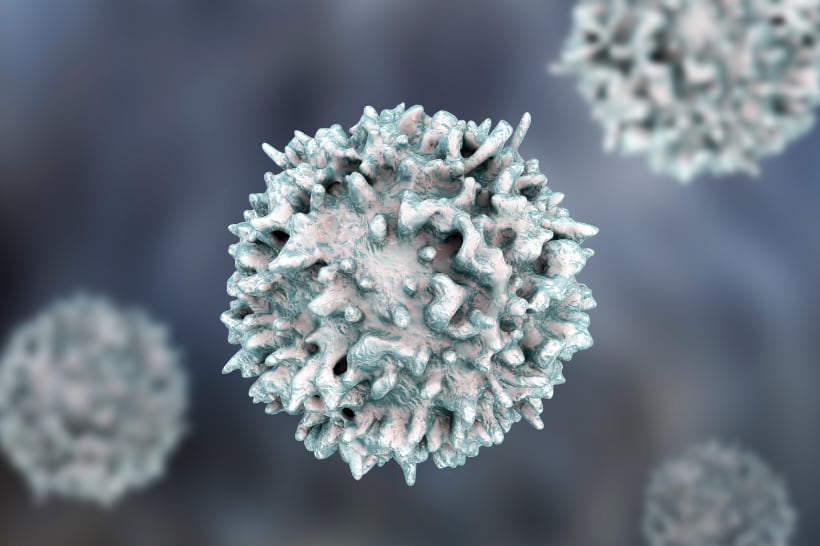 By Dr Jonathan Shurlock BHF funded research led by Professor Federica Marelli-Berg (Queen Mary University of London) has opened the door to new diagnostic approaches to inflammatory cardiomyopathies. The authors describe their approach to measuring and phenotyping peripheral blood T cells, with a particular focus on c-mesenchymal epithelial transition factor expressing (c-Met+) memory T lymphocytes, as these have been shown to preferentially migrate to the heart. 140 participants were grouped by cardiac presentation; autoimmune myocarditis (AM) (n=34), idiopathic dilated cardiomyopathy (n=31), acute ST-segment–elevation myocardial infarction … Read more
By Dr Jonathan Shurlock BHF funded research led by Professor Federica Marelli-Berg (Queen Mary University of London) has opened the door to new diagnostic approaches to inflammatory cardiomyopathies. The authors describe their approach to measuring and phenotyping peripheral blood T cells, with a particular focus on c-mesenchymal epithelial transition factor expressing (c-Met+) memory T lymphocytes, as these have been shown to preferentially migrate to the heart. 140 participants were grouped by cardiac presentation; autoimmune myocarditis (AM) (n=34), idiopathic dilated cardiomyopathy (n=31), acute ST-segment–elevation myocardial infarction … Read more - e-Cigarette smoking associated with endothelial dysfunction
 By Dr Timothy Swinn Two recently published have shed light on the vascular damage caused by cigarettes and e-cigarettes. Flow-mediated dilatation (FMD) was used to measure endothelial function. FMD refers to the dilatation of an artery (brachial or femoral) following a period of ischaemia measured by ultrasound. Reduced FMD is a marker of endothelial dysfunction, which in turn may be a precursor to chronic vascular disease. Nabavizadeh et al1, measured FMD in rats before and after acute exposure to a variety of cigarettes/substances. FMD was … Read more
By Dr Timothy Swinn Two recently published have shed light on the vascular damage caused by cigarettes and e-cigarettes. Flow-mediated dilatation (FMD) was used to measure endothelial function. FMD refers to the dilatation of an artery (brachial or femoral) following a period of ischaemia measured by ultrasound. Reduced FMD is a marker of endothelial dysfunction, which in turn may be a precursor to chronic vascular disease. Nabavizadeh et al1, measured FMD in rats before and after acute exposure to a variety of cigarettes/substances. FMD was … Read more - Early use of ECMO in cardiogenic shock
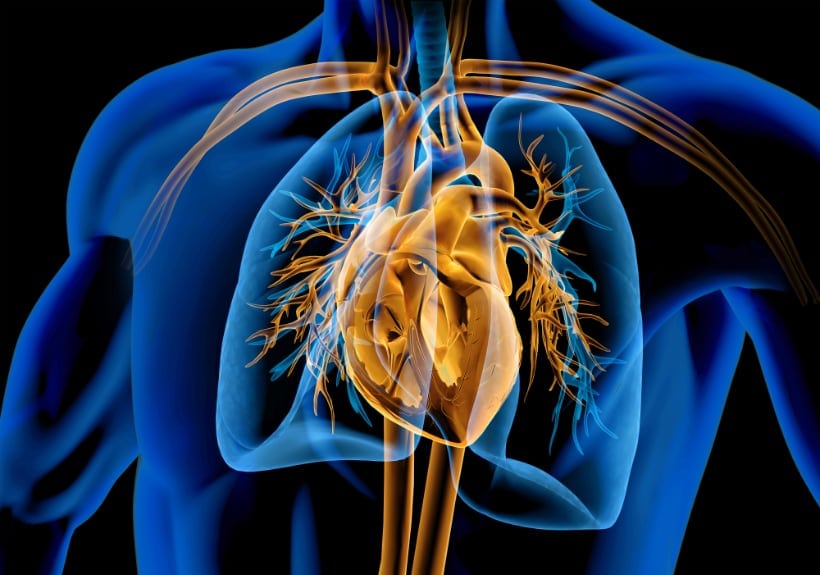 By Dr Aswin Babu Veno-arterial extracorporeal membrane oxygenation (VA-ECMO) is an important tool in the armamentarium of mechanical circulatory support (MCS). The ECMO-CS (Extracorporeal Membrane Oxygenation in the Therapy of Cardiogenic Shock) trial aimed to elucidate the benefits of early use of VA-ECMO in the rapidly deteriorating or severe cardiogenic shock patient cohort. These patients were identified using the Society for Cardiovascular Angiography and Interventions (SCAI) criteria stages D or E. This randomised controlled trial (RCT) recruited 117 eligible patients from four centres in the … Read more
By Dr Aswin Babu Veno-arterial extracorporeal membrane oxygenation (VA-ECMO) is an important tool in the armamentarium of mechanical circulatory support (MCS). The ECMO-CS (Extracorporeal Membrane Oxygenation in the Therapy of Cardiogenic Shock) trial aimed to elucidate the benefits of early use of VA-ECMO in the rapidly deteriorating or severe cardiogenic shock patient cohort. These patients were identified using the Society for Cardiovascular Angiography and Interventions (SCAI) criteria stages D or E. This randomised controlled trial (RCT) recruited 117 eligible patients from four centres in the … Read more - Renal denervation: Do blood pressure reductions persist?
 By Dr Jonathan Shurlock We have previously covered the role of renal denervation in blood pressure control, presented by Professor Markus Schlaich, The RADIANCE-HTN TRIO trial is now published. This multi-centre randomised controlled trial enrolled 136 participants with resistant hypertension, defined as a blood pressure >135/85 despite four weeks of triple therapy (ARB, CCB and thiazide diuretic). Participants were randomised to renal denervation or sham therapy, with no change to antihypertensive treatment within two months post-randomisation. In the following three months standardised stepwise escalation of … Read more
By Dr Jonathan Shurlock We have previously covered the role of renal denervation in blood pressure control, presented by Professor Markus Schlaich, The RADIANCE-HTN TRIO trial is now published. This multi-centre randomised controlled trial enrolled 136 participants with resistant hypertension, defined as a blood pressure >135/85 despite four weeks of triple therapy (ARB, CCB and thiazide diuretic). Participants were randomised to renal denervation or sham therapy, with no change to antihypertensive treatment within two months post-randomisation. In the following three months standardised stepwise escalation of … Read more - ISCHEMIA-EXTENDED interim results: no big surprises
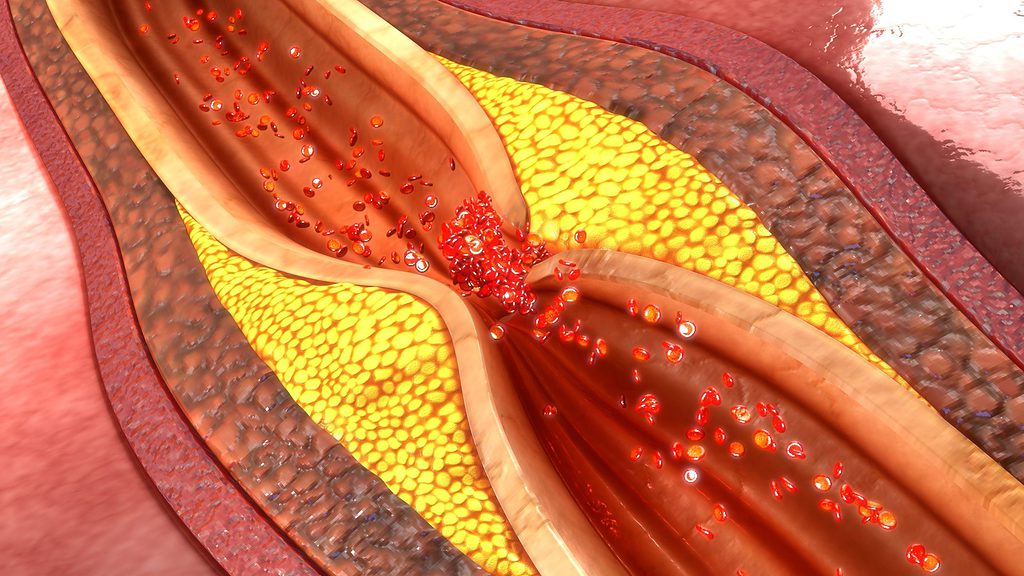 By Dr Jonathan Shurlock The results of the ISCHEMIA have been central to the discussion around management of chronic coronary artery disease since publication in 2020. More recently the author group have published interim results from their ongoing extended follow up period. The original ISCHEMIA trial randomised patients to an initial invasive strategy with guideline directed medical therapy or a conservative approach and included 5179 participants (Median age 65 years). The initial follow up was over a median of 3.2 years and did not find … Read more
By Dr Jonathan Shurlock The results of the ISCHEMIA have been central to the discussion around management of chronic coronary artery disease since publication in 2020. More recently the author group have published interim results from their ongoing extended follow up period. The original ISCHEMIA trial randomised patients to an initial invasive strategy with guideline directed medical therapy or a conservative approach and included 5179 participants (Median age 65 years). The initial follow up was over a median of 3.2 years and did not find … Read more - Key factors that predict in-hospital cardiac arrest in patients with ST elevation Myocardial infarction
 By Dr Aswin Babu The management of patients with ST elevation myocardial infarction (STEMI) has come a long way and thus remarkable improvements in morbidity and mortality has been achieved. In the most recent issue of the Journal of the American College of Cardiology (JACC), authors from the CCC-ACS (Improving Care for Cardiovascular Disease in China-Acute Coronary Syndrome) group based in China demonstrate an in-hospital mortality rate of 1.2% in patients presenting with a STEMI. A total of 40,670 STEMI patients who presented within 24 … Read more
By Dr Aswin Babu The management of patients with ST elevation myocardial infarction (STEMI) has come a long way and thus remarkable improvements in morbidity and mortality has been achieved. In the most recent issue of the Journal of the American College of Cardiology (JACC), authors from the CCC-ACS (Improving Care for Cardiovascular Disease in China-Acute Coronary Syndrome) group based in China demonstrate an in-hospital mortality rate of 1.2% in patients presenting with a STEMI. A total of 40,670 STEMI patients who presented within 24 … Read more - ESC position statement on percutaneous treatment of pulmonary embolism
 A working group led by Dr Piotr Pruszczyk has produced a new position statement on the role of percutaneous intervention for patients with acute pulmonary embolism, with a particular focus on catheter directed thrombolysis (CDT). The group identified 8 key messages from their work: There is a range of CDT techniques, with limited evidence recommending one over another In high-risk PE systemic thrombolysis remains preferable in the first instance Patients with high risk PE and contraindication to systemic thrombolysis should be considered for embolectomy or … Read more
A working group led by Dr Piotr Pruszczyk has produced a new position statement on the role of percutaneous intervention for patients with acute pulmonary embolism, with a particular focus on catheter directed thrombolysis (CDT). The group identified 8 key messages from their work: There is a range of CDT techniques, with limited evidence recommending one over another In high-risk PE systemic thrombolysis remains preferable in the first instance Patients with high risk PE and contraindication to systemic thrombolysis should be considered for embolectomy or … Read more - Ground, instant, and decaffeinated coffee all associated with lower mortality and cardiovascular disease incidence
 By Dr. Timothy Swinn, edited by Dr. Ahmed El-Medany Good news for coffee drinkers everywhere as a recent UK Biobank study published in the European Journal of Preventive Cardiology has shown that multiple types of coffee are associated with lower mortality, cardiovascular disease and arrhythmia incidence1. A study published in the same journal in January 2022 had concluded that coffee consumption of up to three cups per day was associated with favourable cardiovascular outcomes2, however Cheing and their co-authors went further to assess whether ground, … Read more
By Dr. Timothy Swinn, edited by Dr. Ahmed El-Medany Good news for coffee drinkers everywhere as a recent UK Biobank study published in the European Journal of Preventive Cardiology has shown that multiple types of coffee are associated with lower mortality, cardiovascular disease and arrhythmia incidence1. A study published in the same journal in January 2022 had concluded that coffee consumption of up to three cups per day was associated with favourable cardiovascular outcomes2, however Cheing and their co-authors went further to assess whether ground, … Read more - Pig-to-human heart transplant: unexpected conduction characteristics
 By Dr. Jonathan Shurlock Xenotransplantation of a pig heart into a 57-year-old man with end stage heart failure made headlines globally earlier in the year, with the patient living for 61 days post-transplantation. Data from this prominent case is to be presented at the American Heart Association Scientific Sessions on November 5th-7th, focussing on the electrical conduction characteristics of the implanted heart. The author group describes how the usual ECG measures and intervals in pig hearts are generally shorter than those seen in humans, but … Read more
By Dr. Jonathan Shurlock Xenotransplantation of a pig heart into a 57-year-old man with end stage heart failure made headlines globally earlier in the year, with the patient living for 61 days post-transplantation. Data from this prominent case is to be presented at the American Heart Association Scientific Sessions on November 5th-7th, focussing on the electrical conduction characteristics of the implanted heart. The author group describes how the usual ECG measures and intervals in pig hearts are generally shorter than those seen in humans, but … Read more - The PROTECCT trial: exploring a new approach to suspected acute coronary syndrome presentations
 By Dr. Jonathan Shurlock, edited by Dr. Ahmed El-Medany Chest pain remains a common presentation to emergency departments and many of these patients end up on a pathway of attempting to rule out an acute coronary syndrome. At present this approach can require multiple blood tests to assess trends in high-sensitivity troponin concentrations. The authors of the Prospective RandOmised Trial of Emergency Cardiac Computerised Tomography (PROTECCT) trial have set out to explore the role of CT coronary angiography (CTCA) in this setting, in those individuals … Read more
By Dr. Jonathan Shurlock, edited by Dr. Ahmed El-Medany Chest pain remains a common presentation to emergency departments and many of these patients end up on a pathway of attempting to rule out an acute coronary syndrome. At present this approach can require multiple blood tests to assess trends in high-sensitivity troponin concentrations. The authors of the Prospective RandOmised Trial of Emergency Cardiac Computerised Tomography (PROTECCT) trial have set out to explore the role of CT coronary angiography (CTCA) in this setting, in those individuals … Read more - Discovering a “lifesaving beat” with BHF and Spotify
 By Dr. Jonathan Shurlock Restart a heart day took place on 16th October 2022. As part of the British Heart Foundation’s awareness campaign “Life Saving Beats” was launched on Spotify. The campaign focuses on the importance of a rate of 100-120bpm when performing chest compressions and allows members of the public to listen to any of their favourite songs at this tempo while learning CPR. The training takes 15 minutes and is coordinated through the RevivR training tool, which is free to use for anyone … Read more
By Dr. Jonathan Shurlock Restart a heart day took place on 16th October 2022. As part of the British Heart Foundation’s awareness campaign “Life Saving Beats” was launched on Spotify. The campaign focuses on the importance of a rate of 100-120bpm when performing chest compressions and allows members of the public to listen to any of their favourite songs at this tempo while learning CPR. The training takes 15 minutes and is coordinated through the RevivR training tool, which is free to use for anyone … Read more - New National CMR teaching programme launched for cardiology trainees
 By Dr. Oliver Jones East of England (EoE) deanery trainees and consultants have developed a cardiac magnetic resonance (CMR) imaging teaching programme which is now open to cardiology trainees nationally. Sessions are free of charge, and run on Zoom every Thursday 1pm – 1:30pm, with opportunity for questions at the end. Teaching is provided by Dr Batool Almogheer, Dr Dominique Auger, Dr Joban Sehmi and Dr Niall Keenan, all consultant cardiologists fully certified in CMR, and the programme has been endorsed by Prof Vass Vassiliou, … Read more
By Dr. Oliver Jones East of England (EoE) deanery trainees and consultants have developed a cardiac magnetic resonance (CMR) imaging teaching programme which is now open to cardiology trainees nationally. Sessions are free of charge, and run on Zoom every Thursday 1pm – 1:30pm, with opportunity for questions at the end. Teaching is provided by Dr Batool Almogheer, Dr Dominique Auger, Dr Joban Sehmi and Dr Niall Keenan, all consultant cardiologists fully certified in CMR, and the programme has been endorsed by Prof Vass Vassiliou, … Read more - First subcutaneous furosemide approved by US Food and Drug Administration
 By Dr. Oliver Jones Key points: scPharmaceuticals claims first-ever approval for subcutaneous furosemide formulation in US markets Novel formulation offers promise for expanded community treatment of heart failure and hospital admission avoidance scPharmaceuticals announced this week that the US Food and Drug Administration had approved its first-in-class subcutaneous furosemide injection Furoscix®, delivered via an “on-body infusor”. The novel formulation delivers 80mg furosemide in a 10mL cartridge, and gained approval for treatment of congestion or fluid overload in New York Heart Association Class II/III chronic heart failure … Read more
By Dr. Oliver Jones Key points: scPharmaceuticals claims first-ever approval for subcutaneous furosemide formulation in US markets Novel formulation offers promise for expanded community treatment of heart failure and hospital admission avoidance scPharmaceuticals announced this week that the US Food and Drug Administration had approved its first-in-class subcutaneous furosemide injection Furoscix®, delivered via an “on-body infusor”. The novel formulation delivers 80mg furosemide in a 10mL cartridge, and gained approval for treatment of congestion or fluid overload in New York Heart Association Class II/III chronic heart failure … Read more - ACC Expert Consensus moves away from STEMI framework
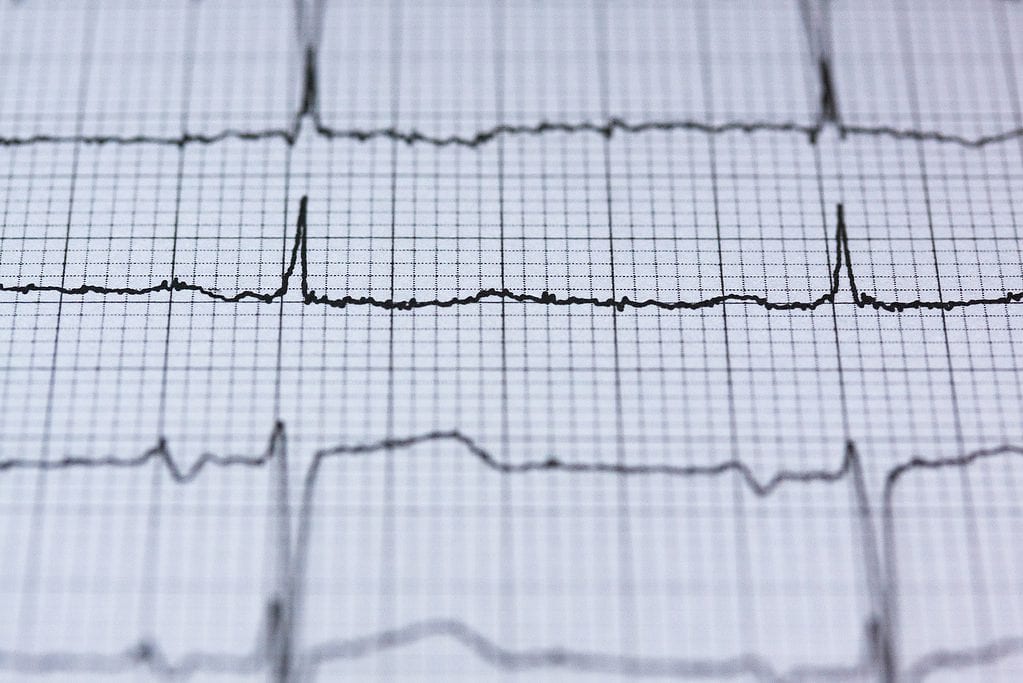 By Dr. Timothy Swinn, edited by Dr. Ahmed El-Medany A recent expert consensus from the American College of Cardiology (ACC) has recommended a broader approach to ECG findings that merit cath lab activation than the traditional STEMI criteria1. This marks the first time that the ACC has moved towards an occlusion MI vs. non-occlusion MI framework (“OMI” vs. “NOMI”) in place of STEMI vs. NSTEMI. Whilst the European Society of Cardiology listed ECG features of STEMI-equivalence (namely bundle branch block, ventricular pacing, hyperacute T-waves, isolated … Read more
By Dr. Timothy Swinn, edited by Dr. Ahmed El-Medany A recent expert consensus from the American College of Cardiology (ACC) has recommended a broader approach to ECG findings that merit cath lab activation than the traditional STEMI criteria1. This marks the first time that the ACC has moved towards an occlusion MI vs. non-occlusion MI framework (“OMI” vs. “NOMI”) in place of STEMI vs. NSTEMI. Whilst the European Society of Cardiology listed ECG features of STEMI-equivalence (namely bundle branch block, ventricular pacing, hyperacute T-waves, isolated … Read more - Taking up and maintaining exercise both beneficial post cardiovascular event
 By Dr. Timothy Swinn, edited by Dr. Ahmed El-Medany A recent cohort study published in Heart using a Korean health database has concluded that both maintaining and taking up exercise after a cardiovascular event confers a mortality benefit. Although the benefits of exercise are well-established, this study by Kang et al1 differs to previous studies due to the older median age (72), and analysis of the temporal change in exercise, rather than a snapshot pre or post event. 6,076 participants were included. Exercise habits pre … Read more
By Dr. Timothy Swinn, edited by Dr. Ahmed El-Medany A recent cohort study published in Heart using a Korean health database has concluded that both maintaining and taking up exercise after a cardiovascular event confers a mortality benefit. Although the benefits of exercise are well-established, this study by Kang et al1 differs to previous studies due to the older median age (72), and analysis of the temporal change in exercise, rather than a snapshot pre or post event. 6,076 participants were included. Exercise habits pre … Read more
